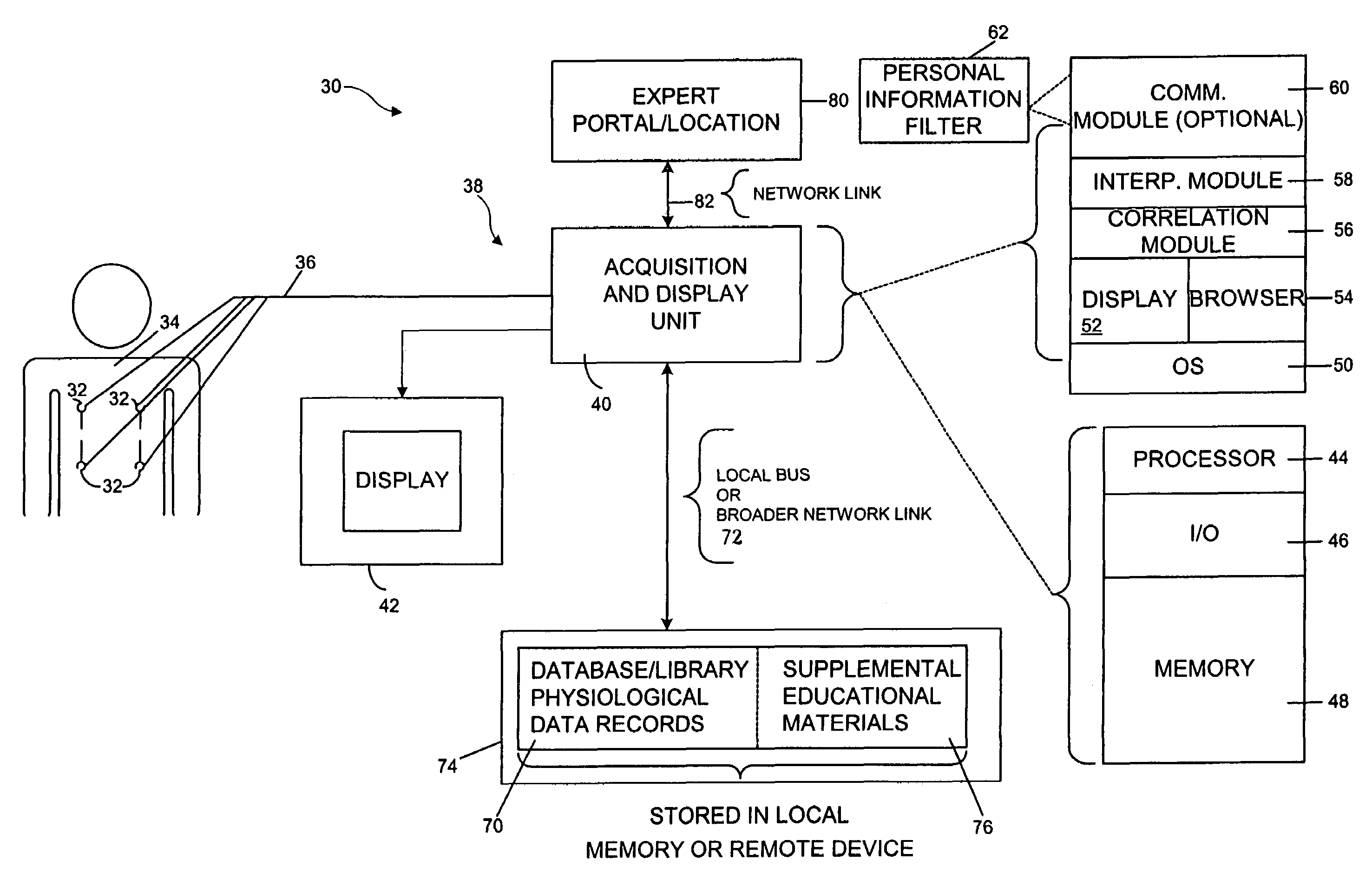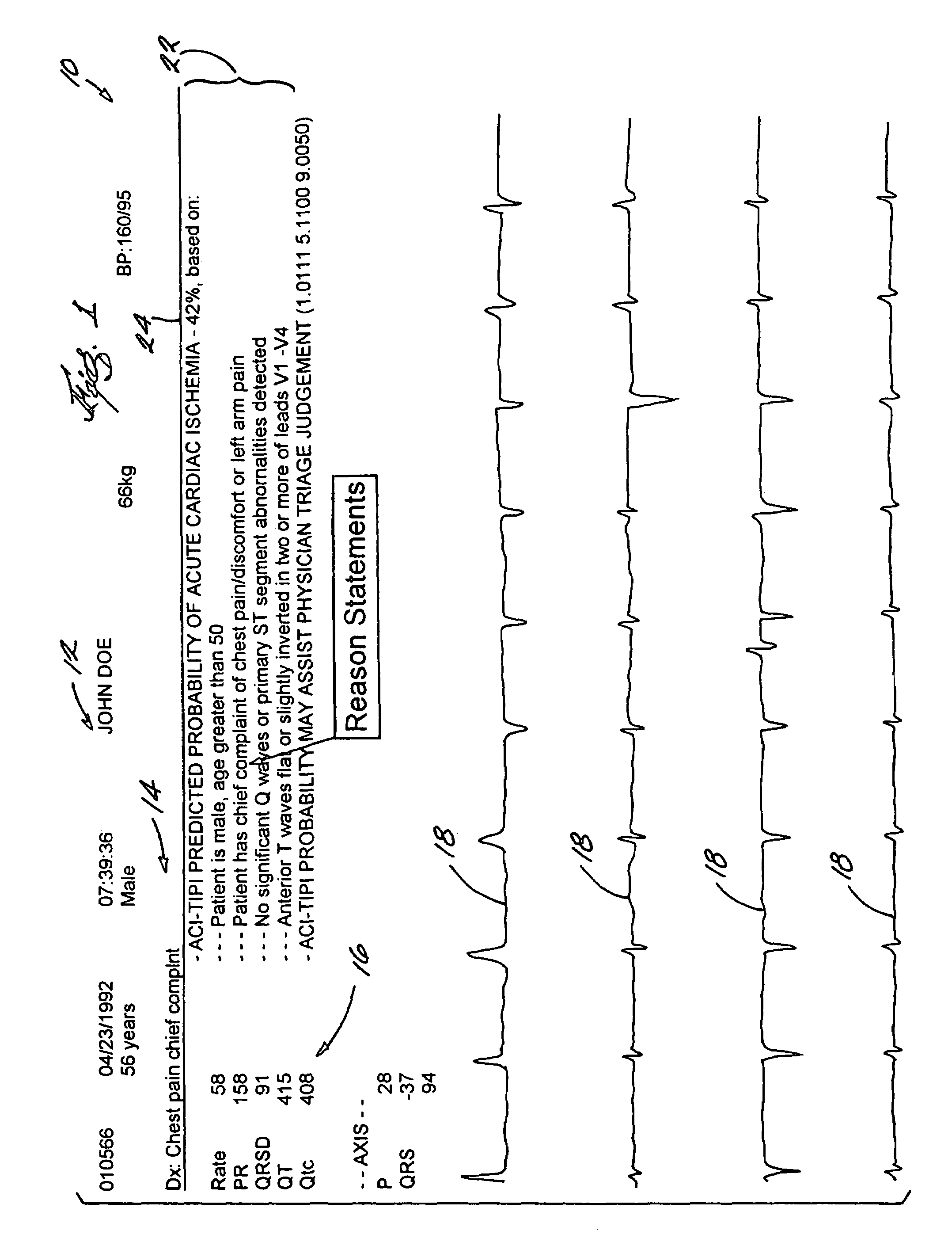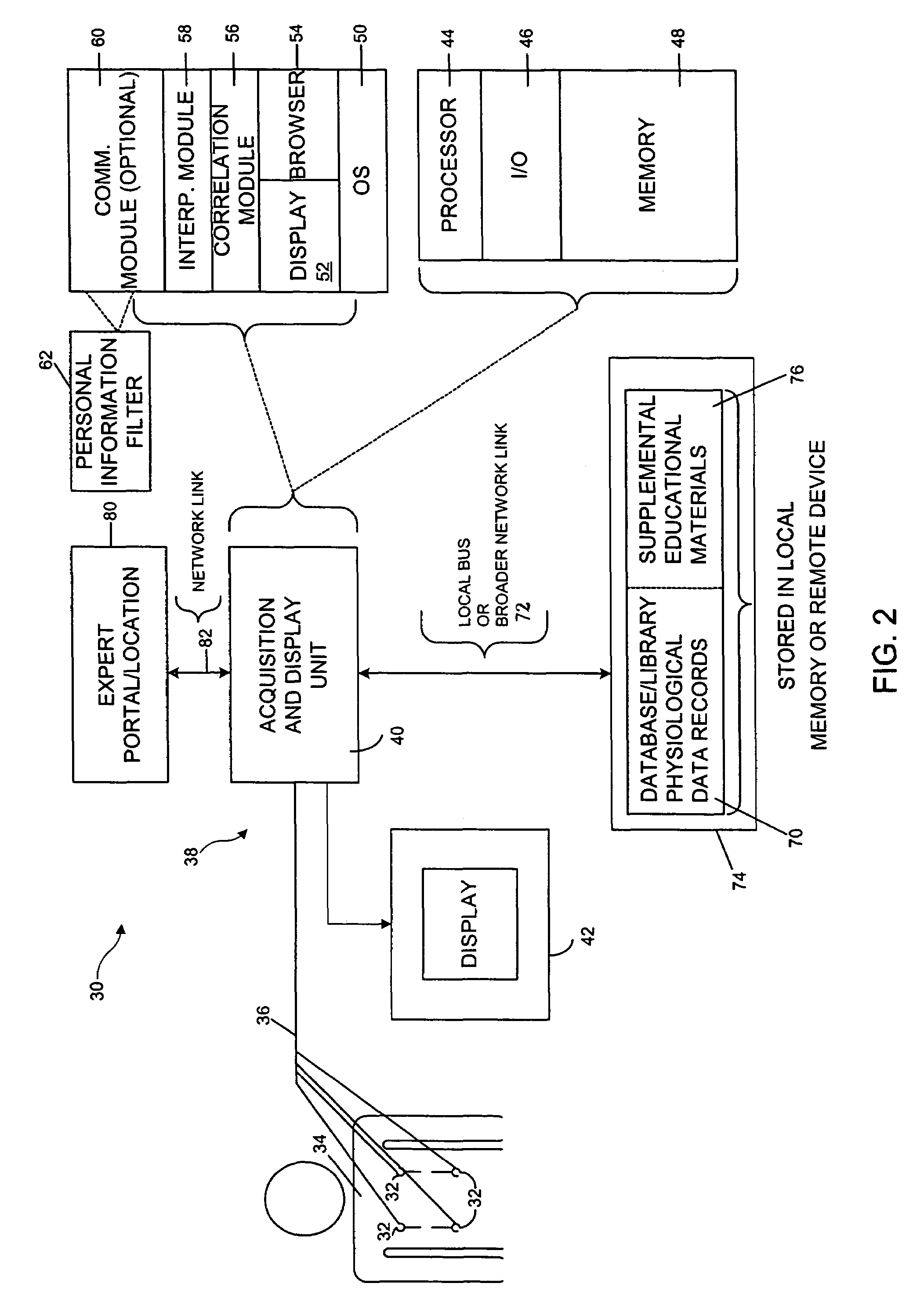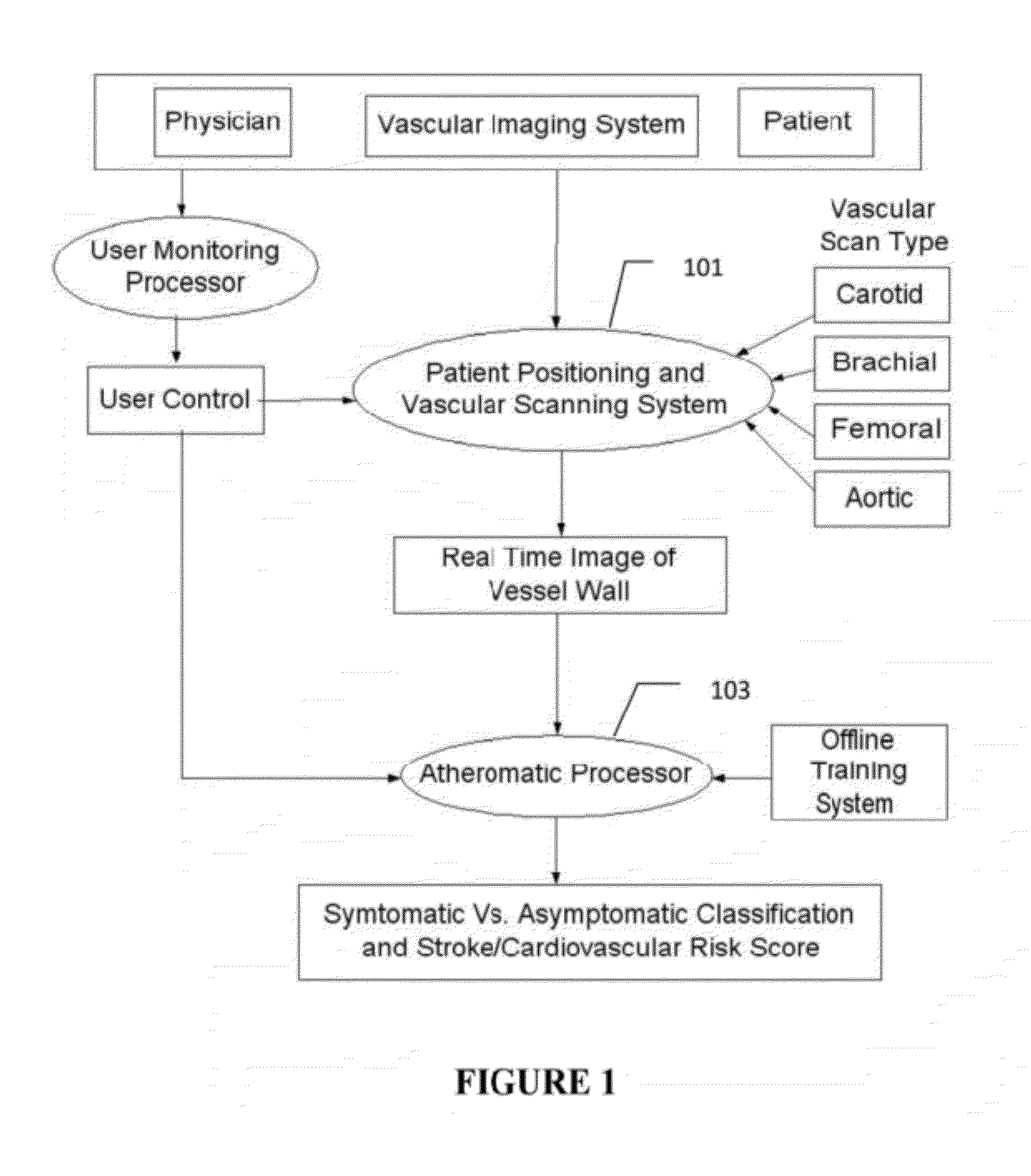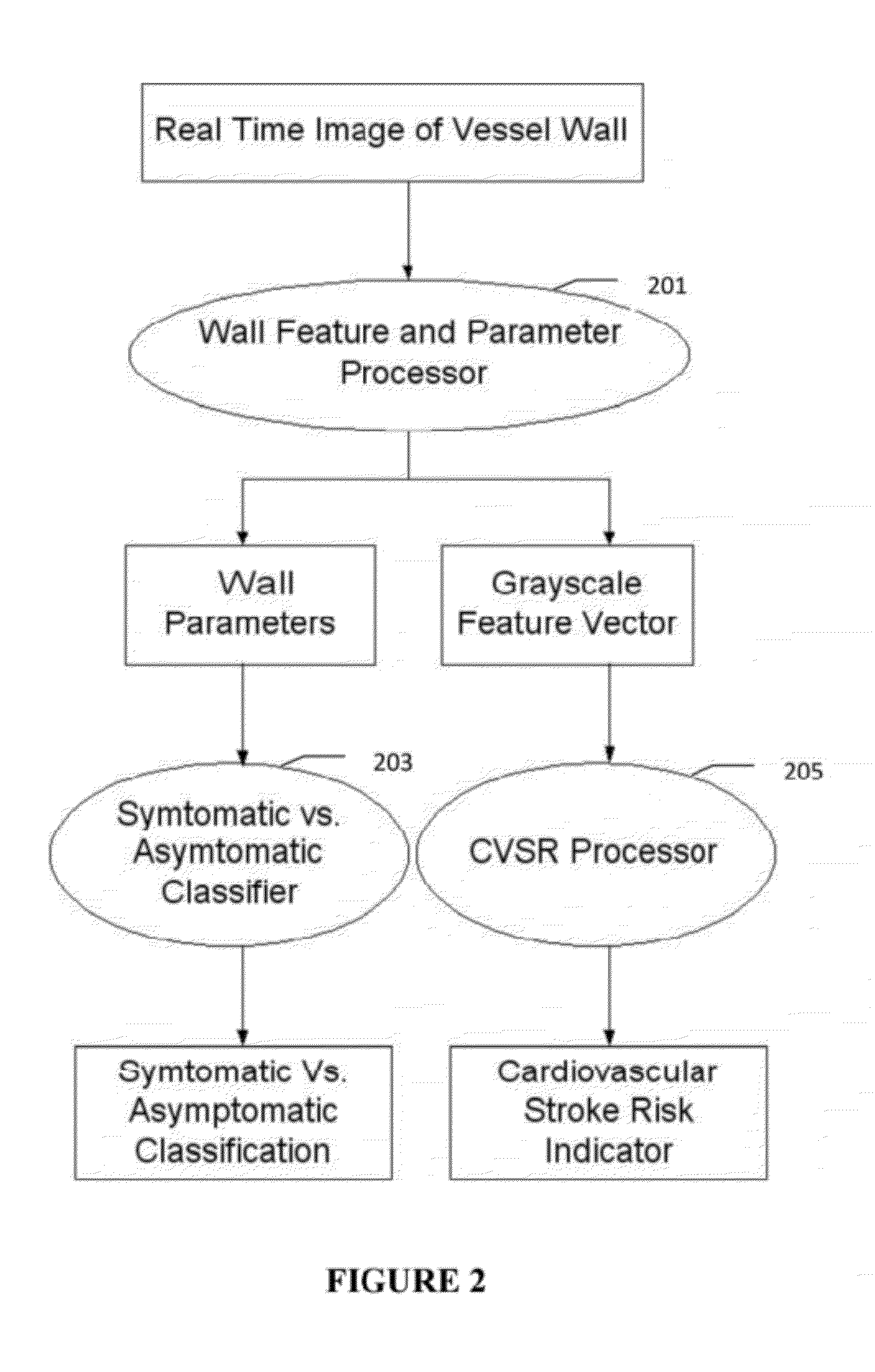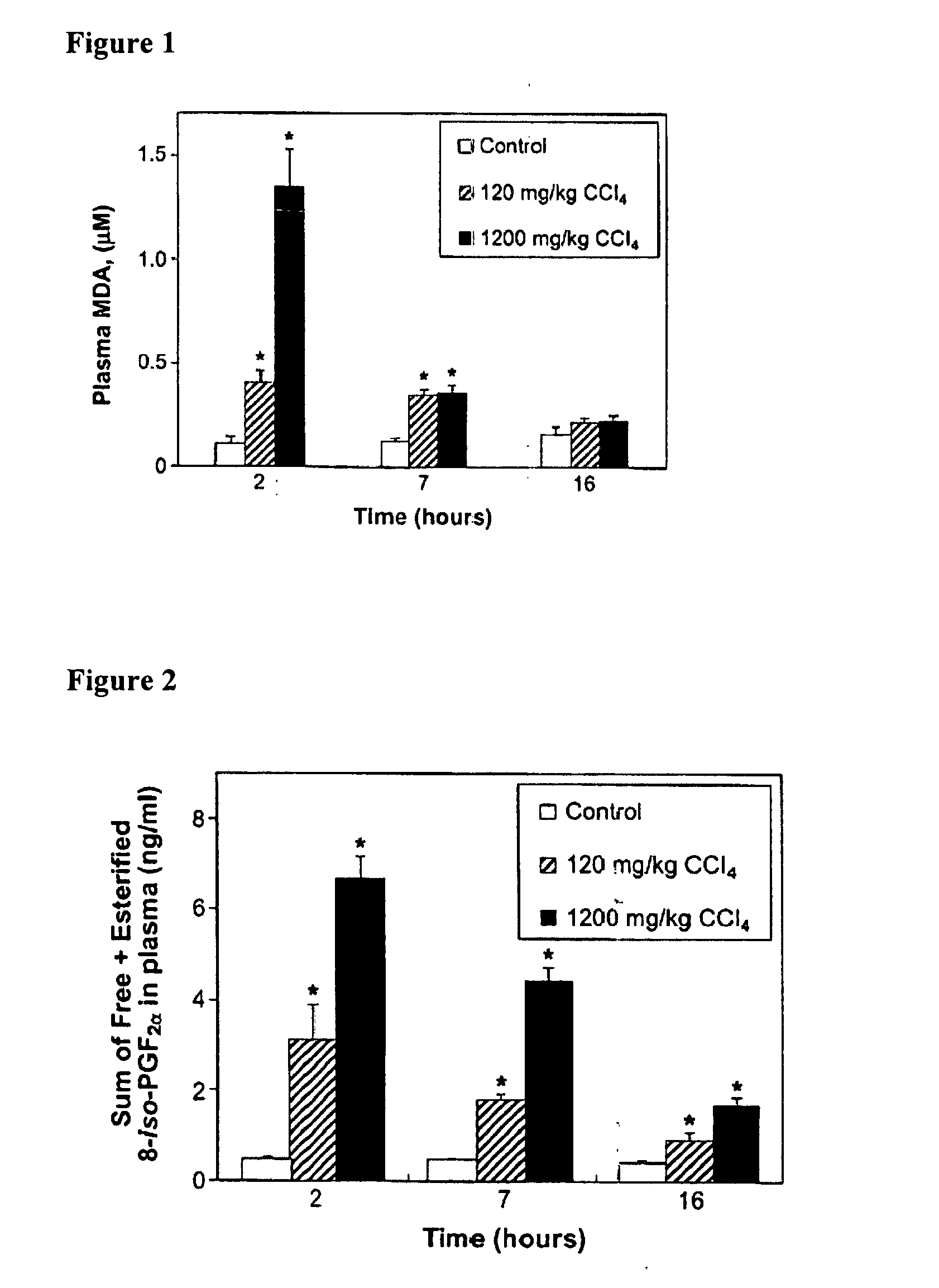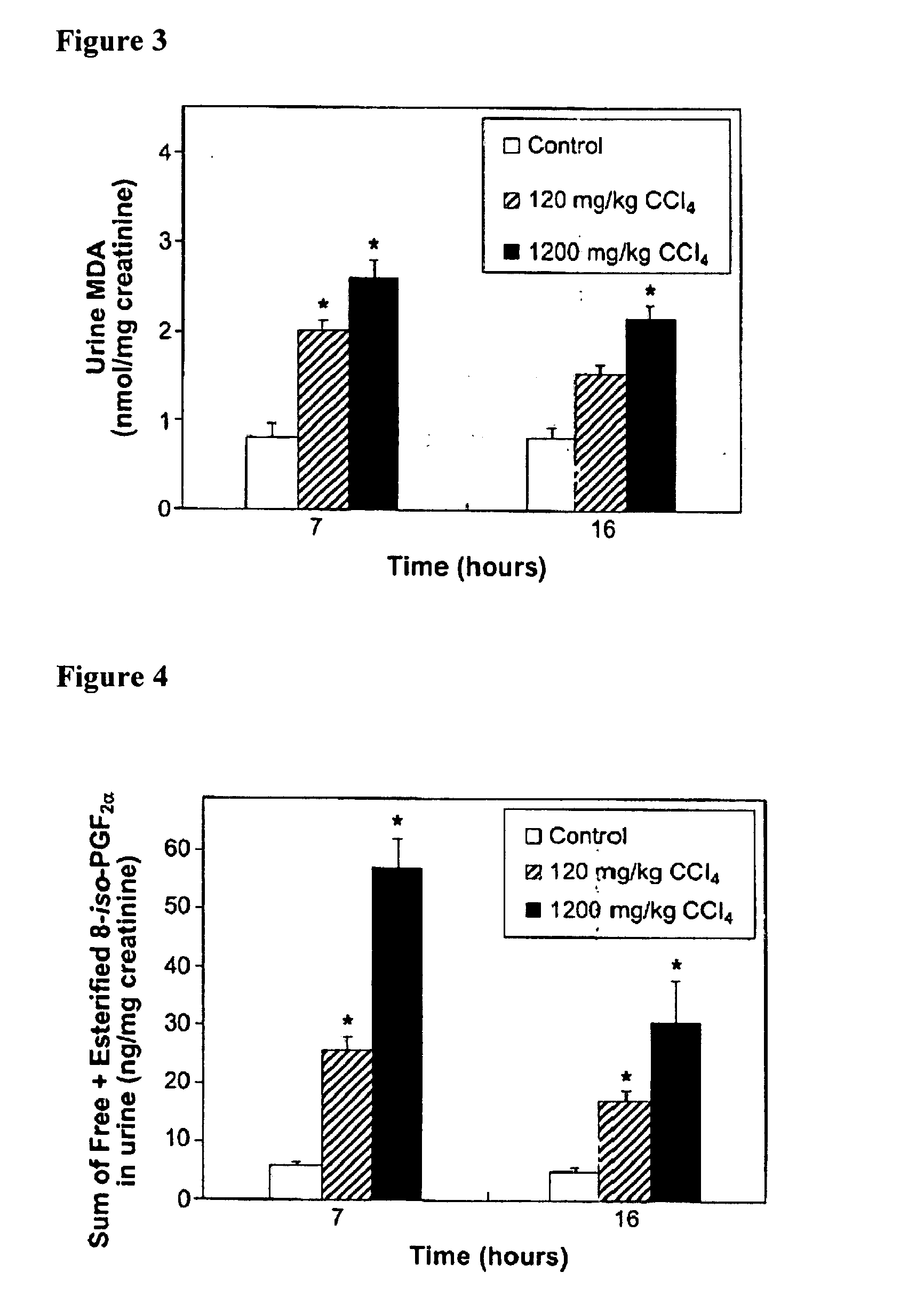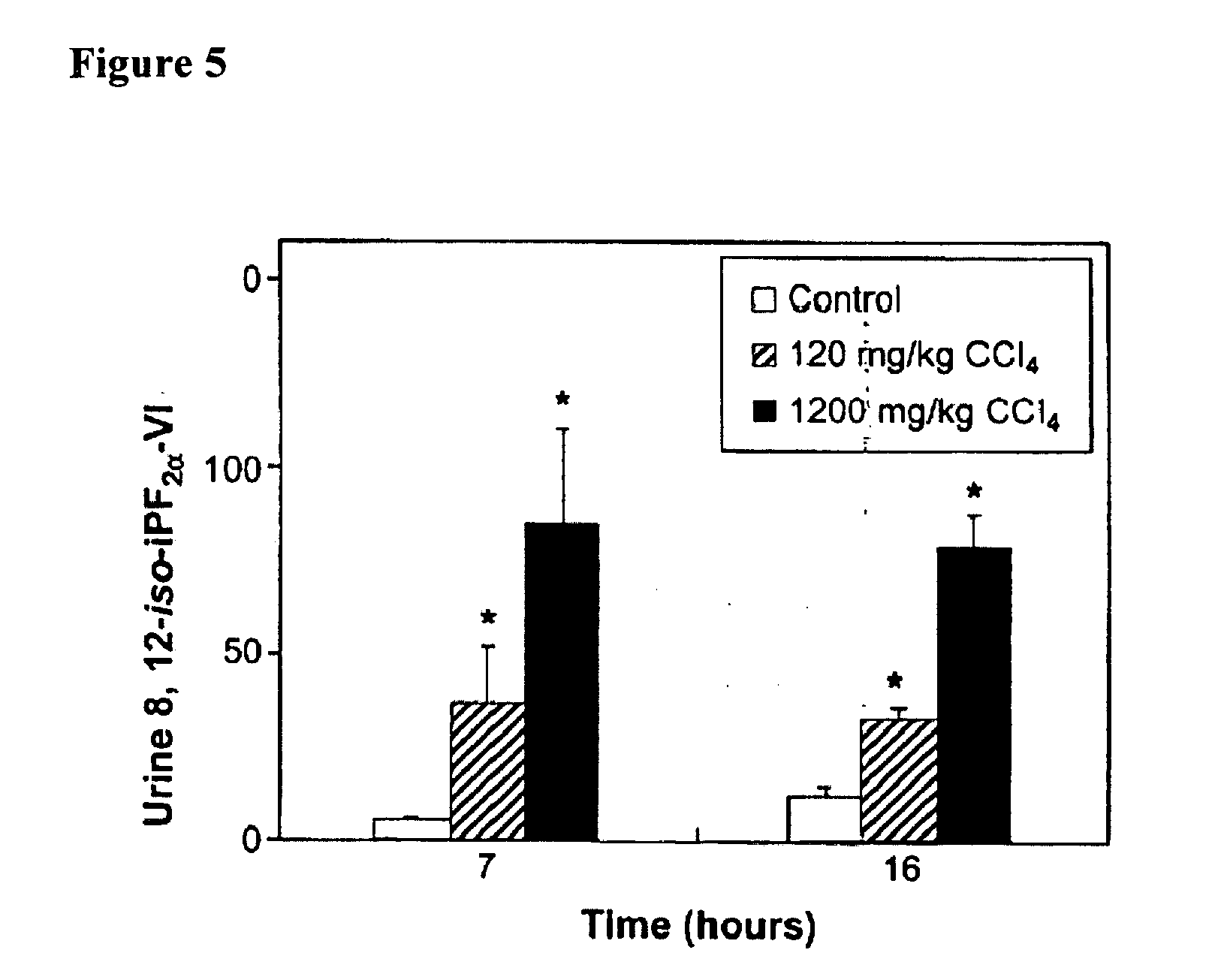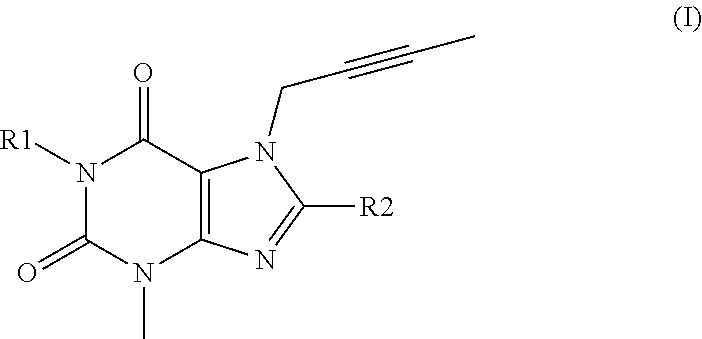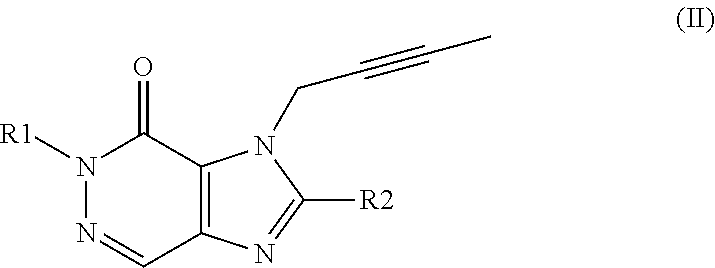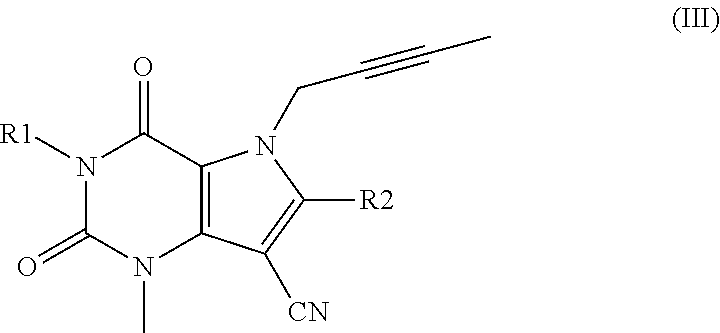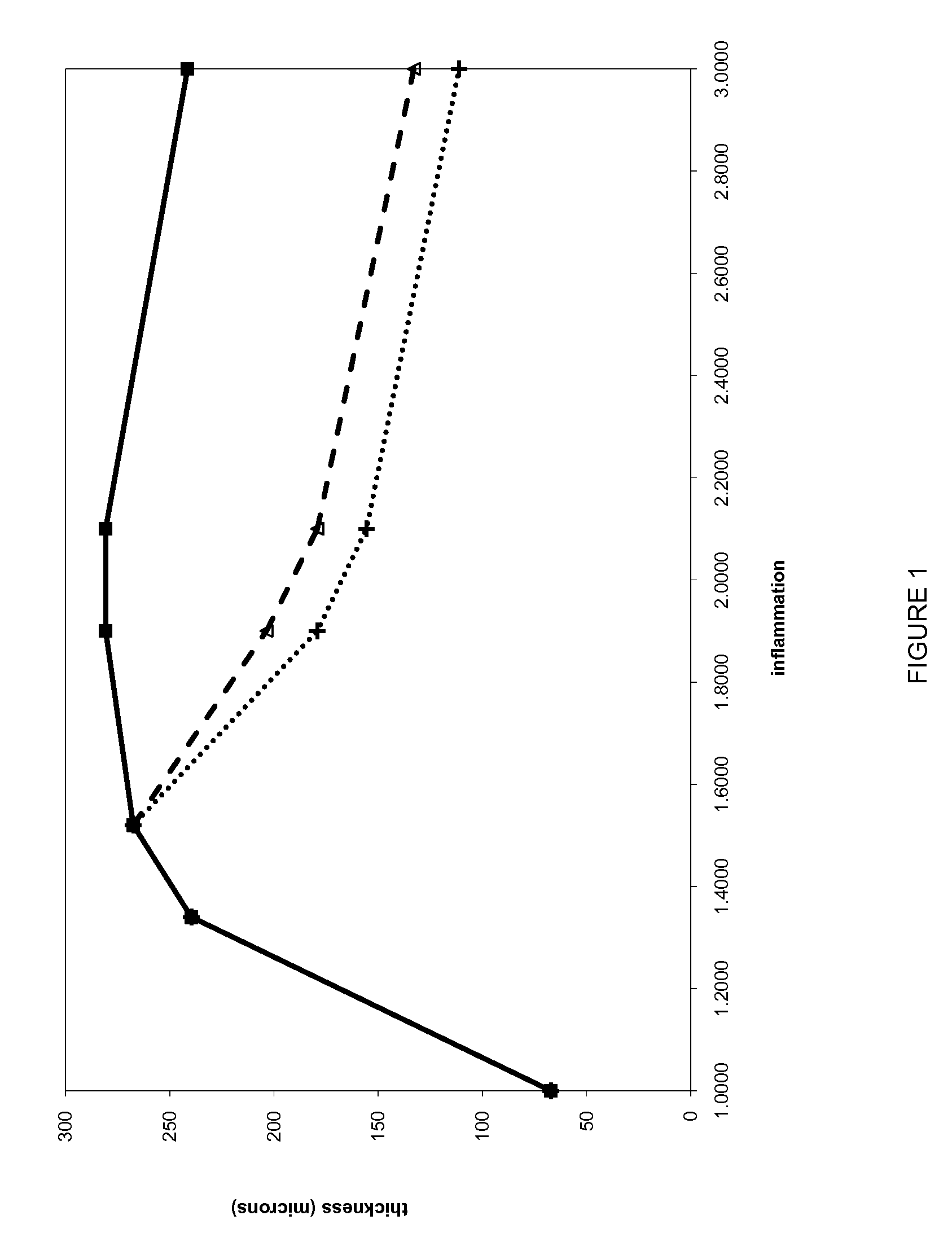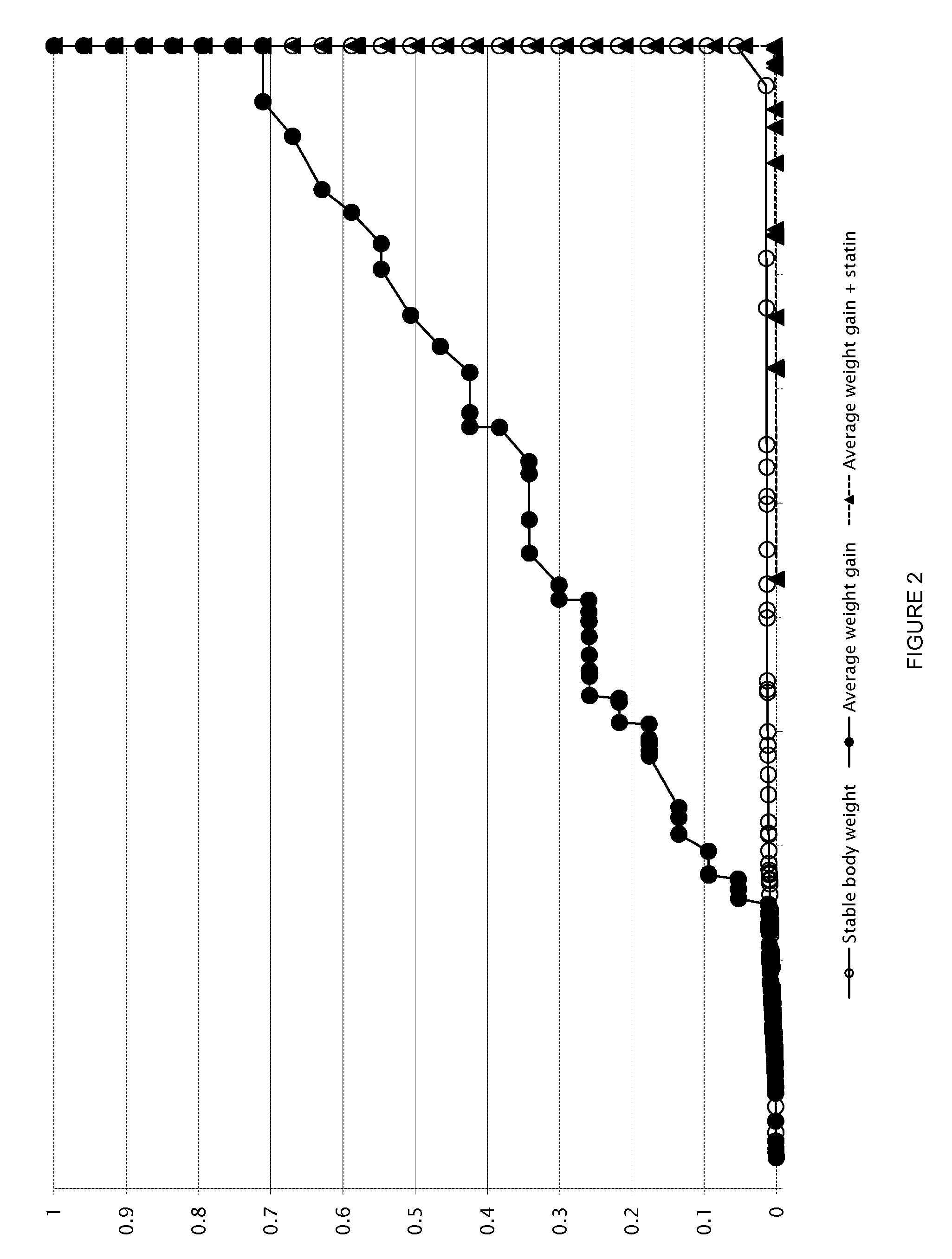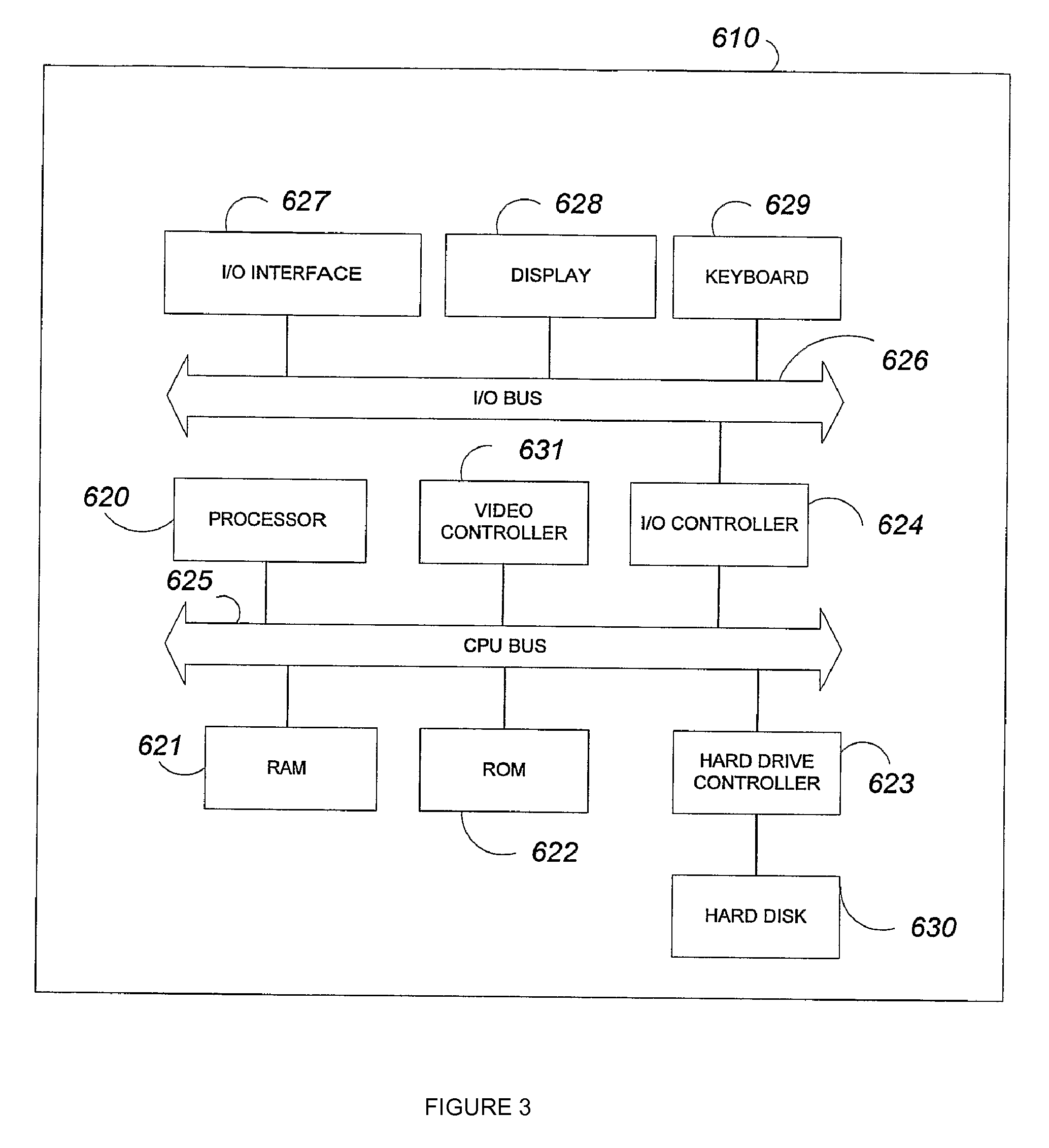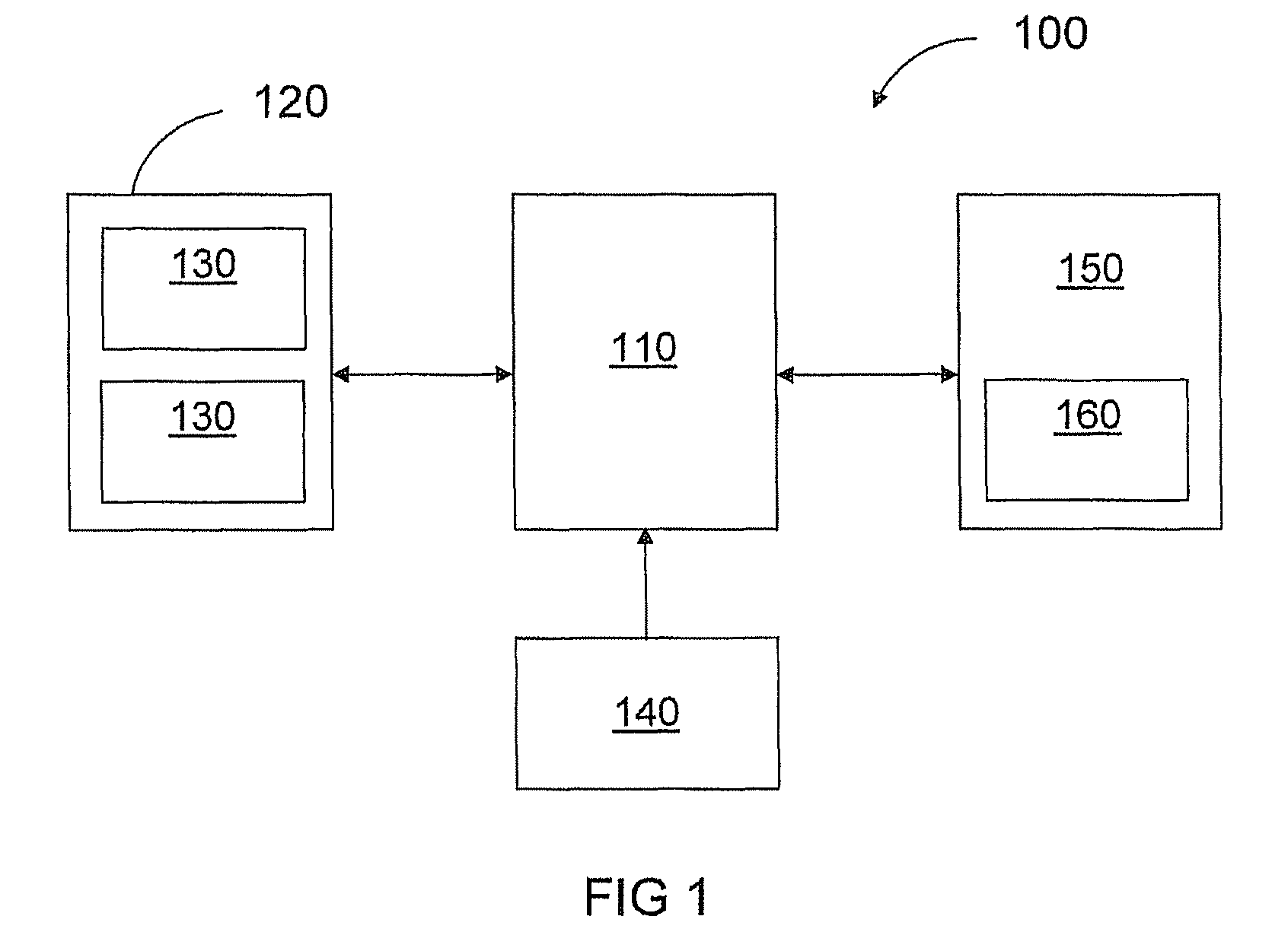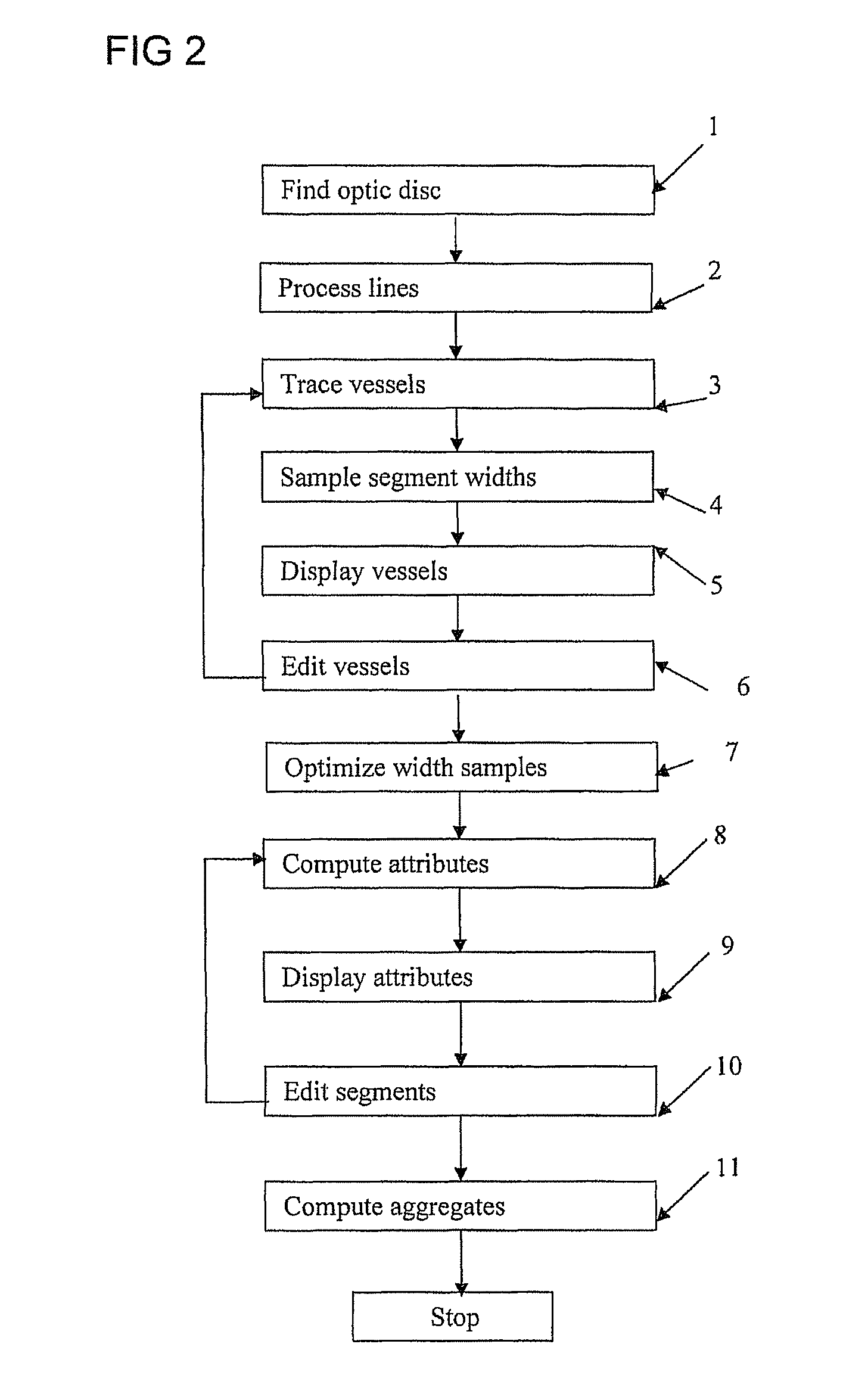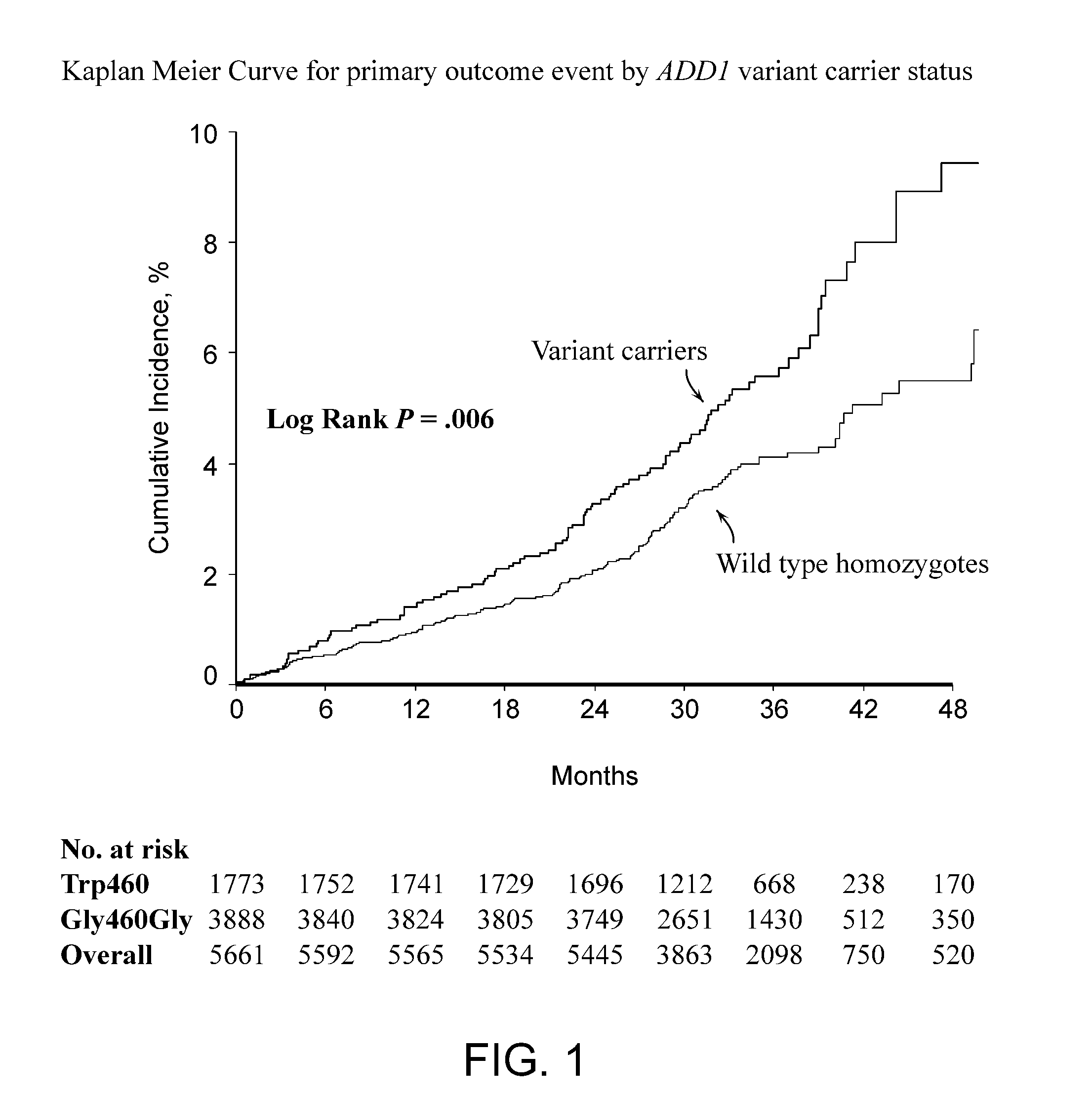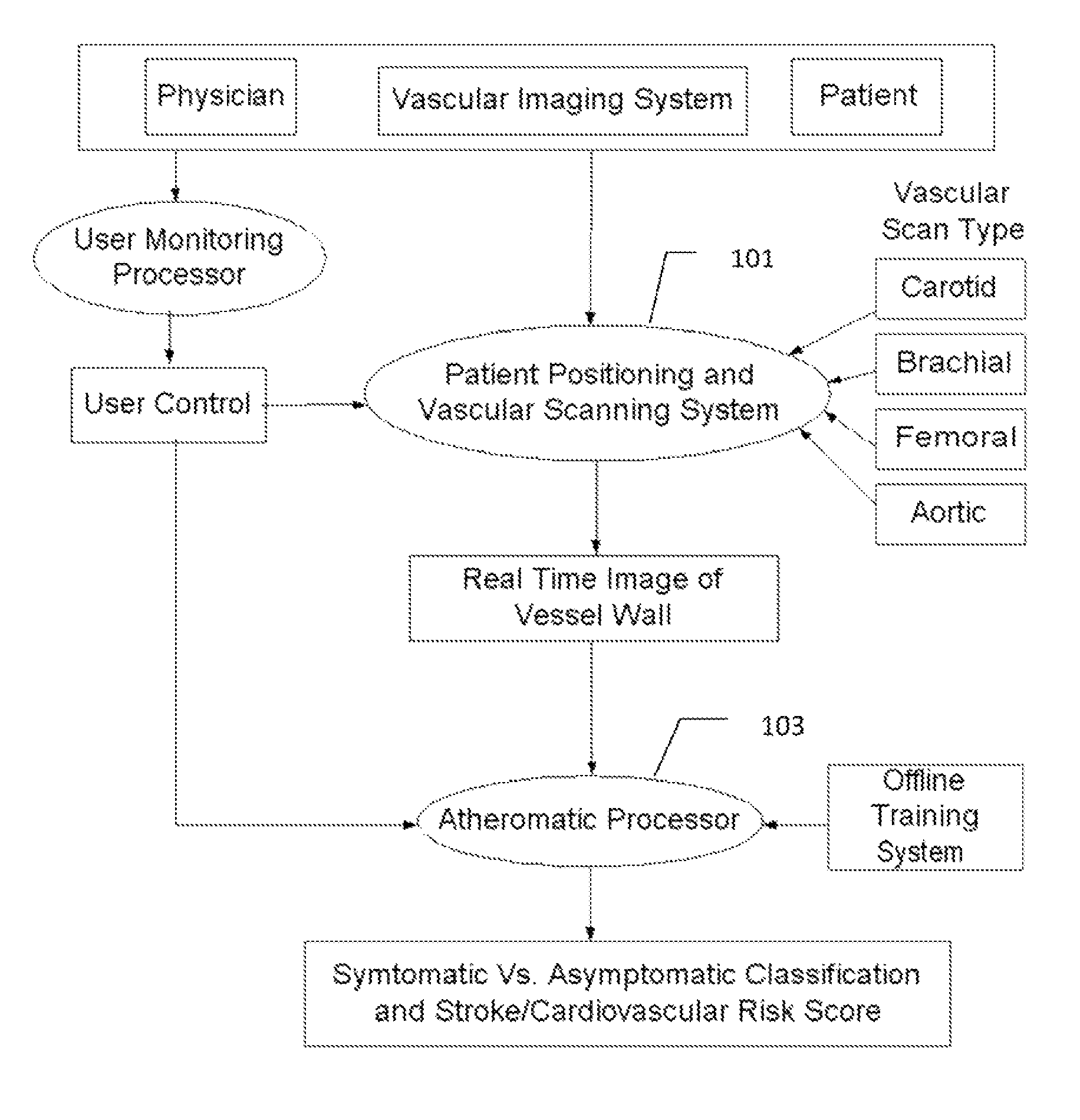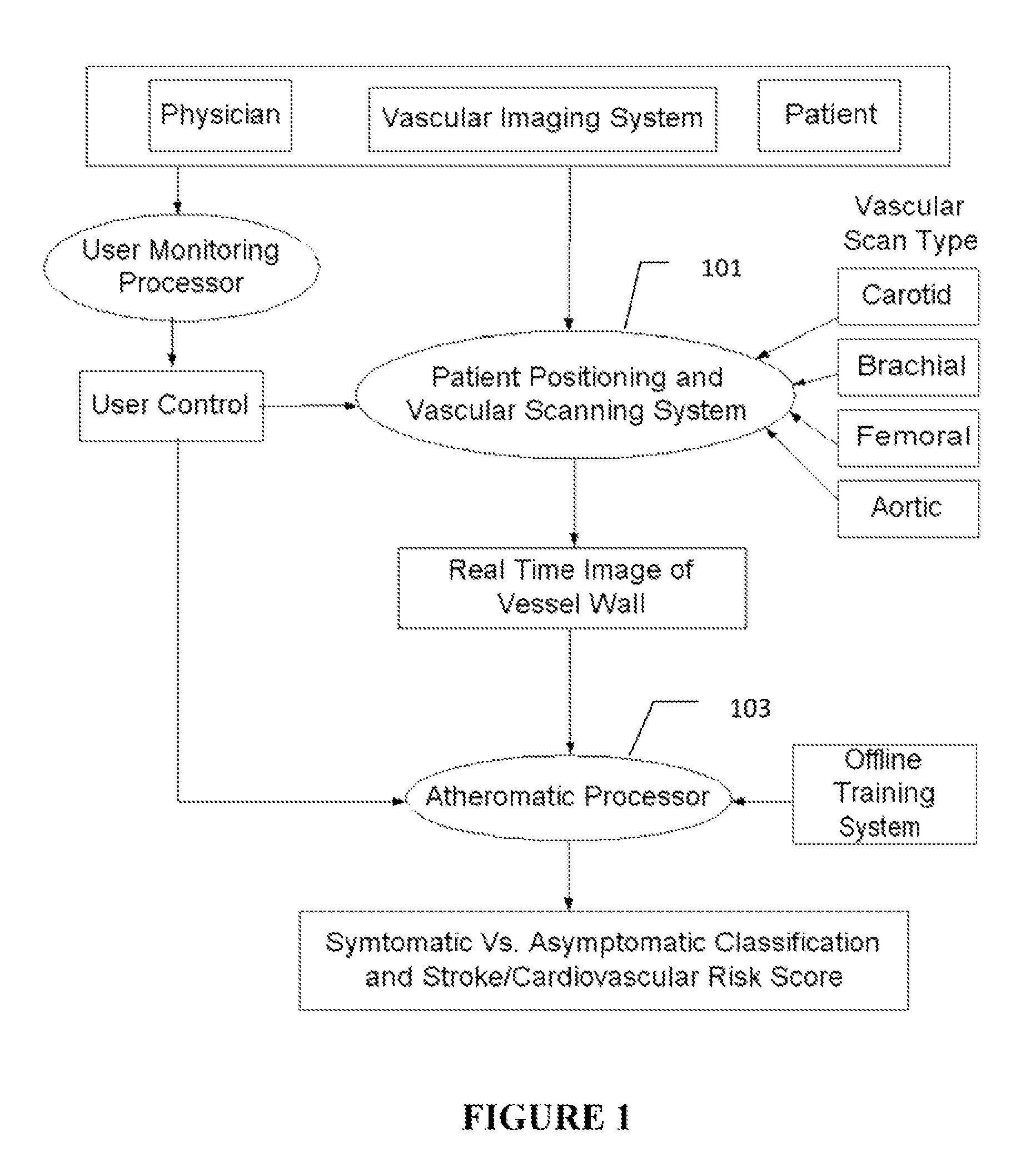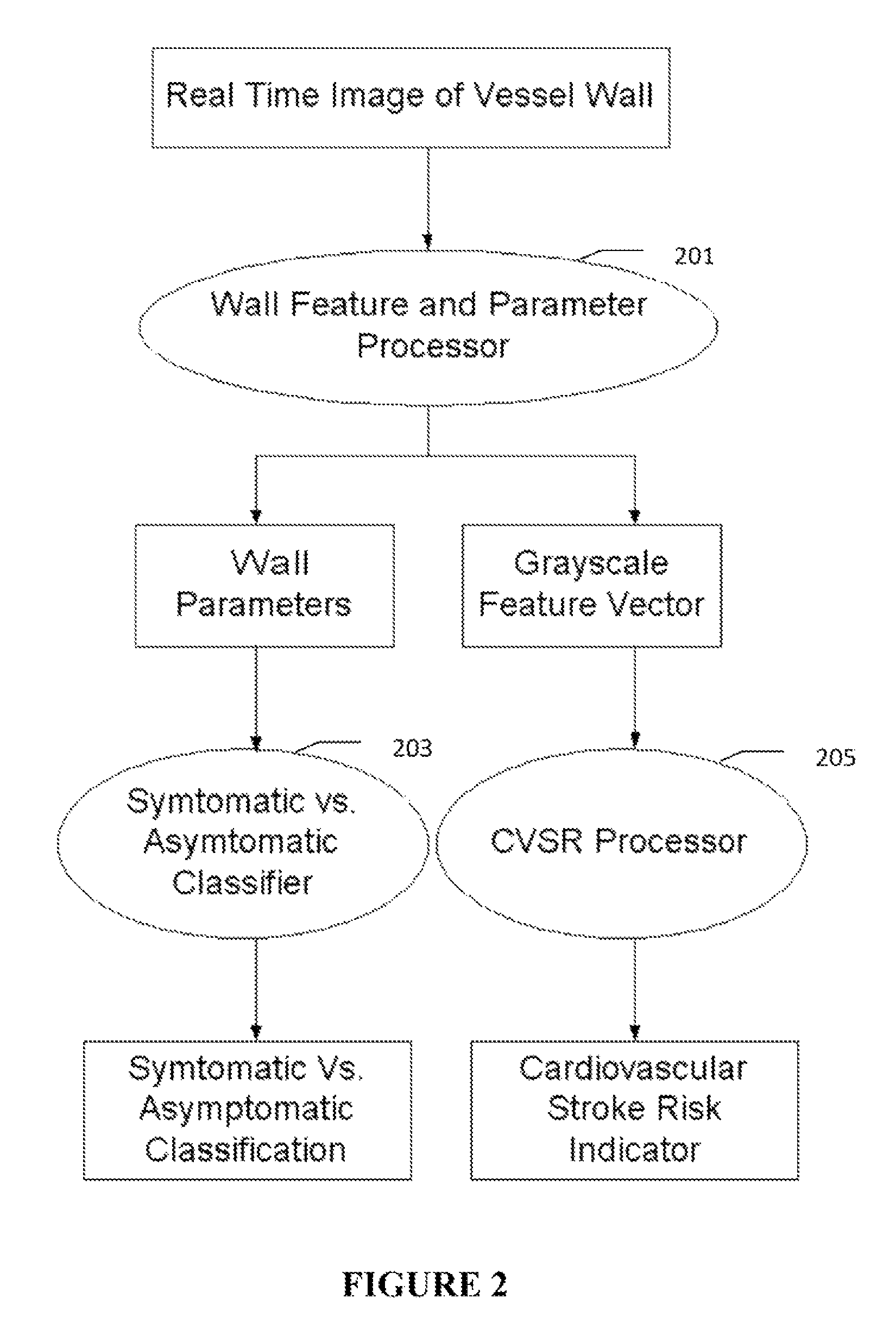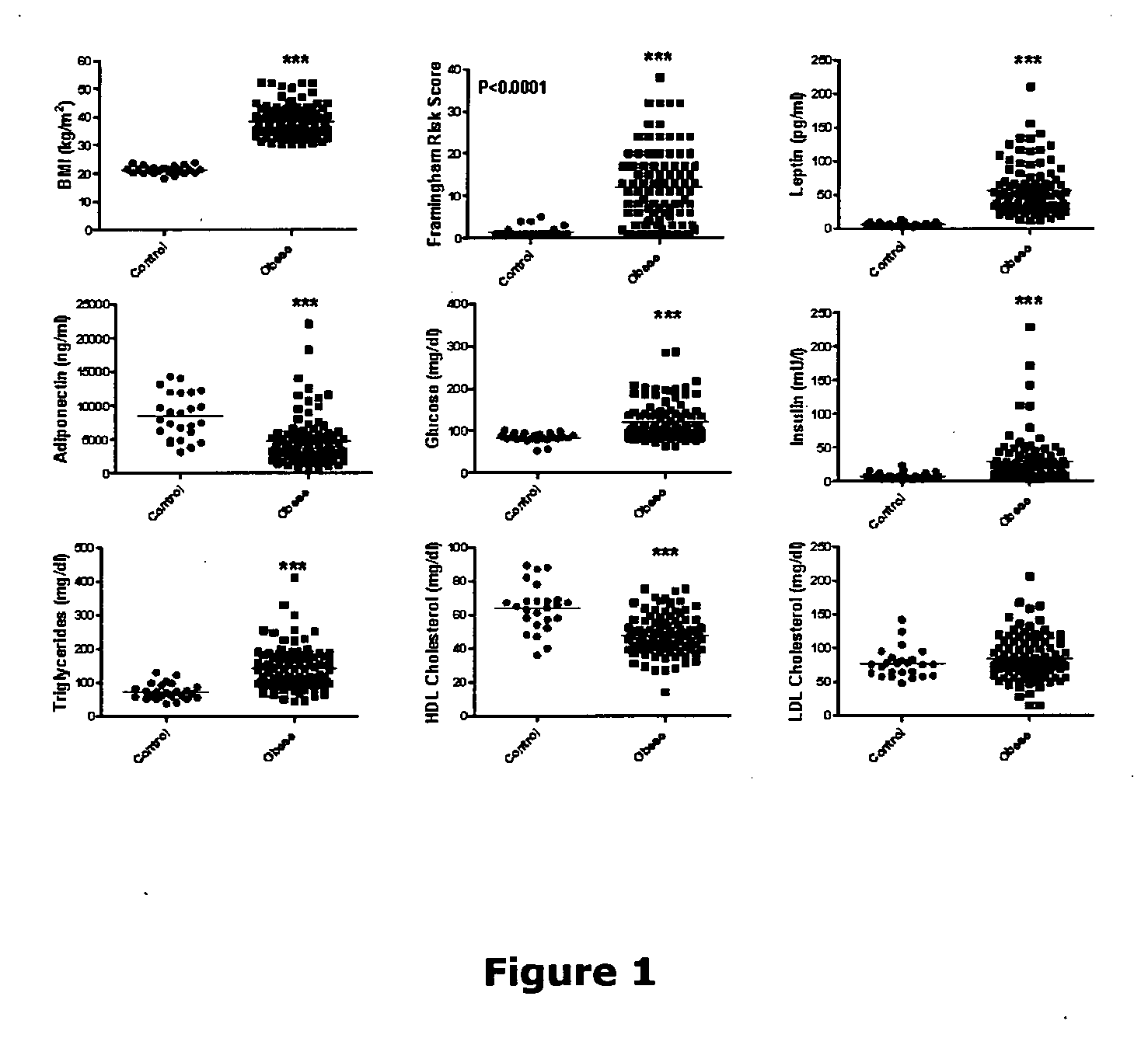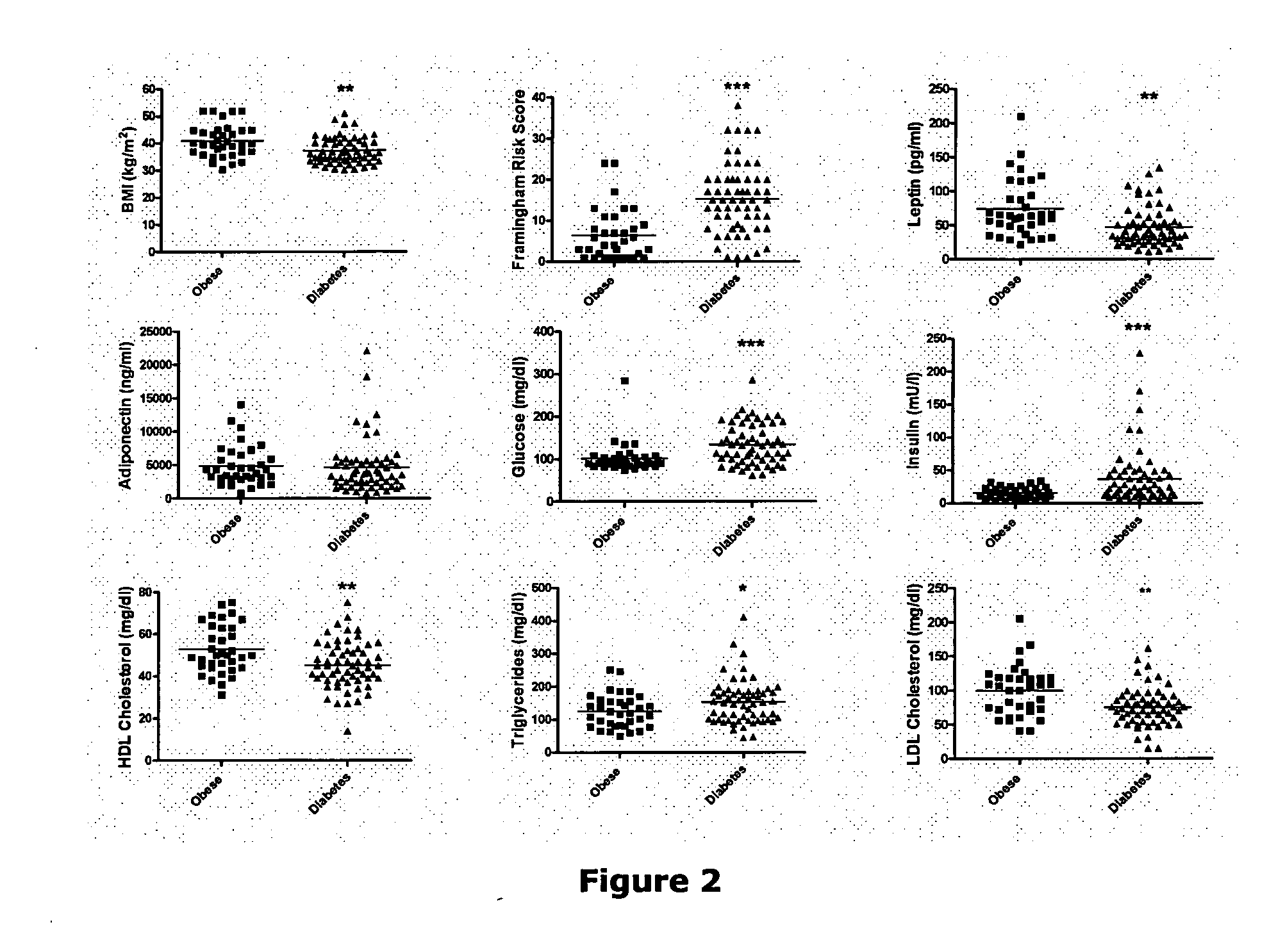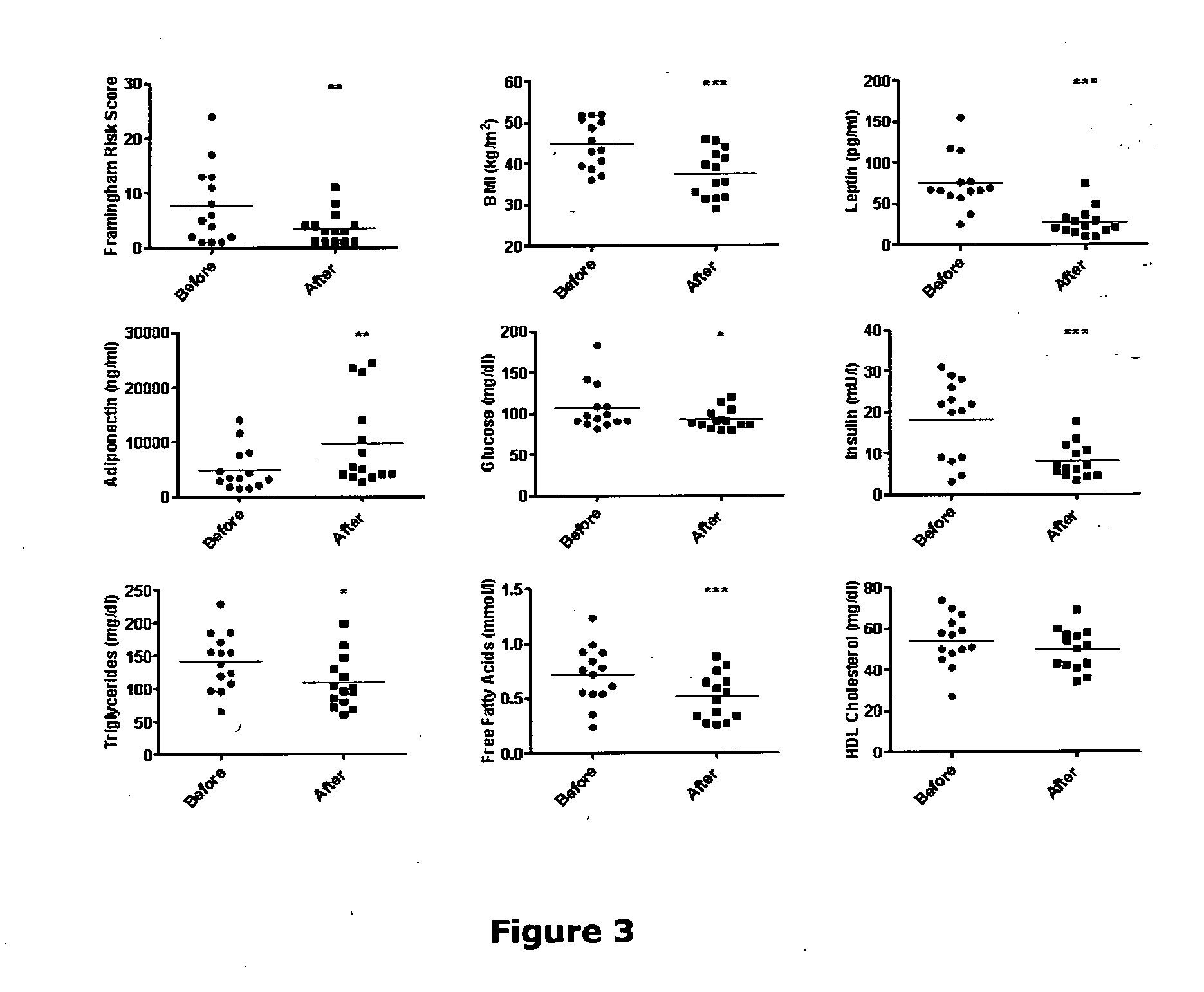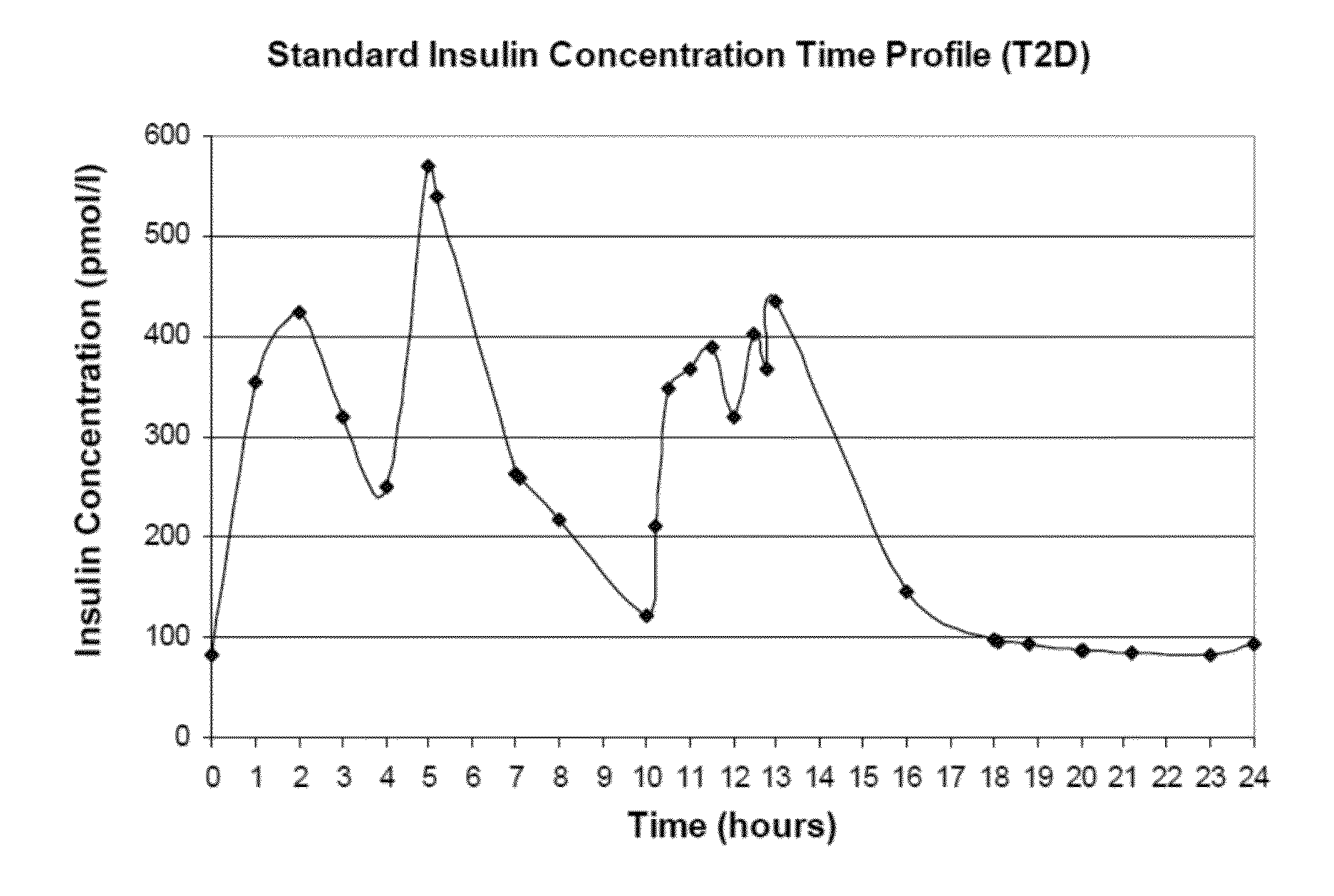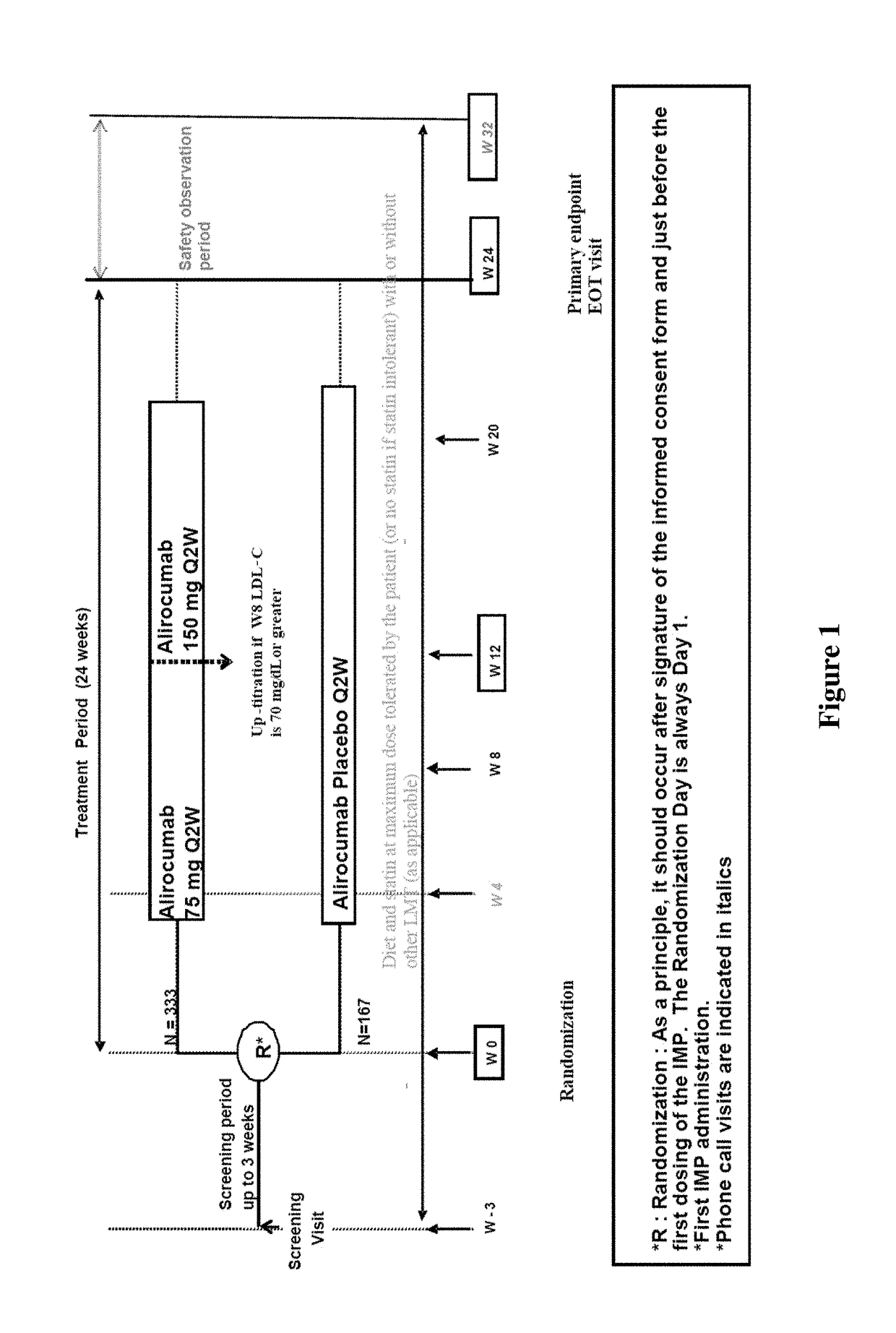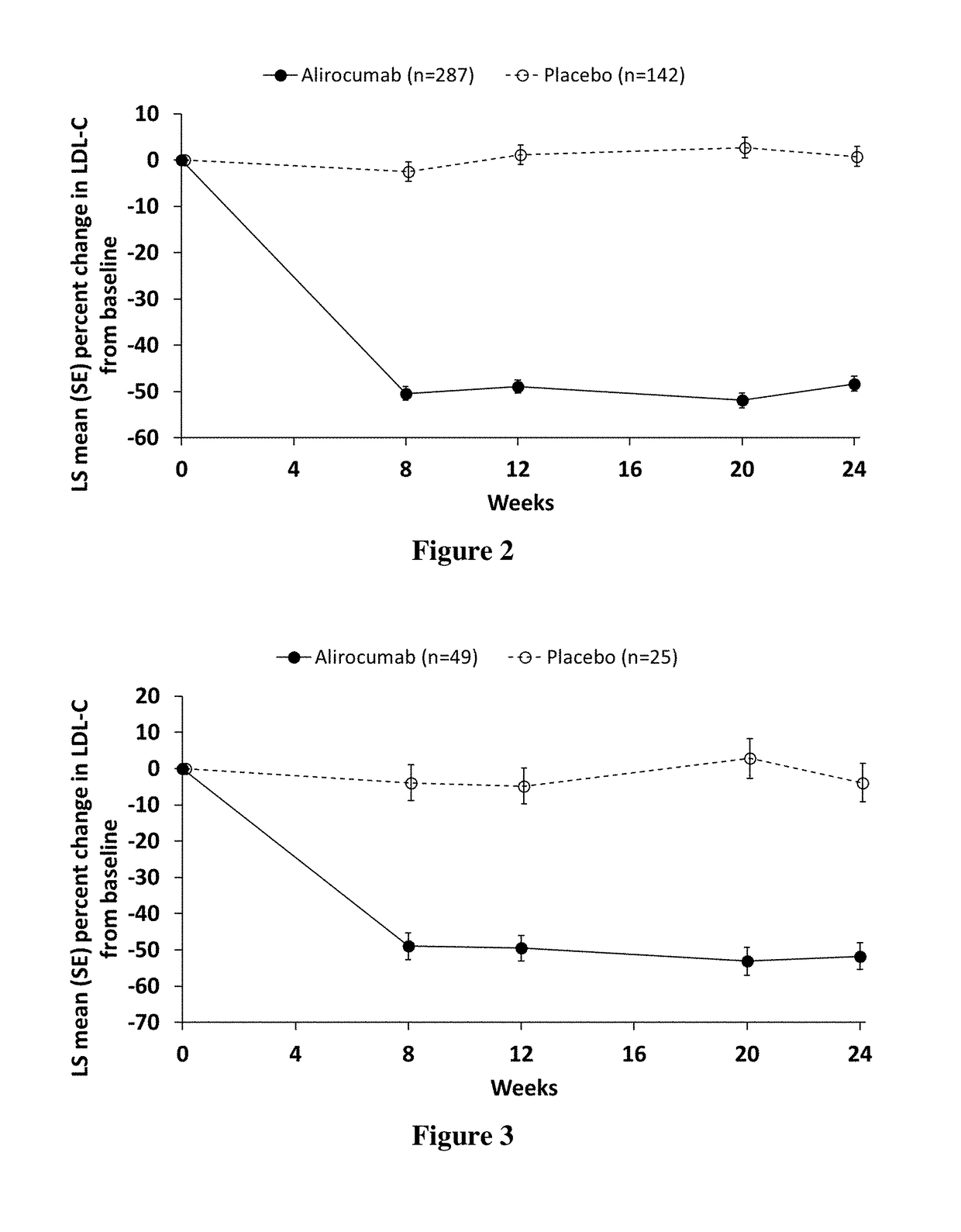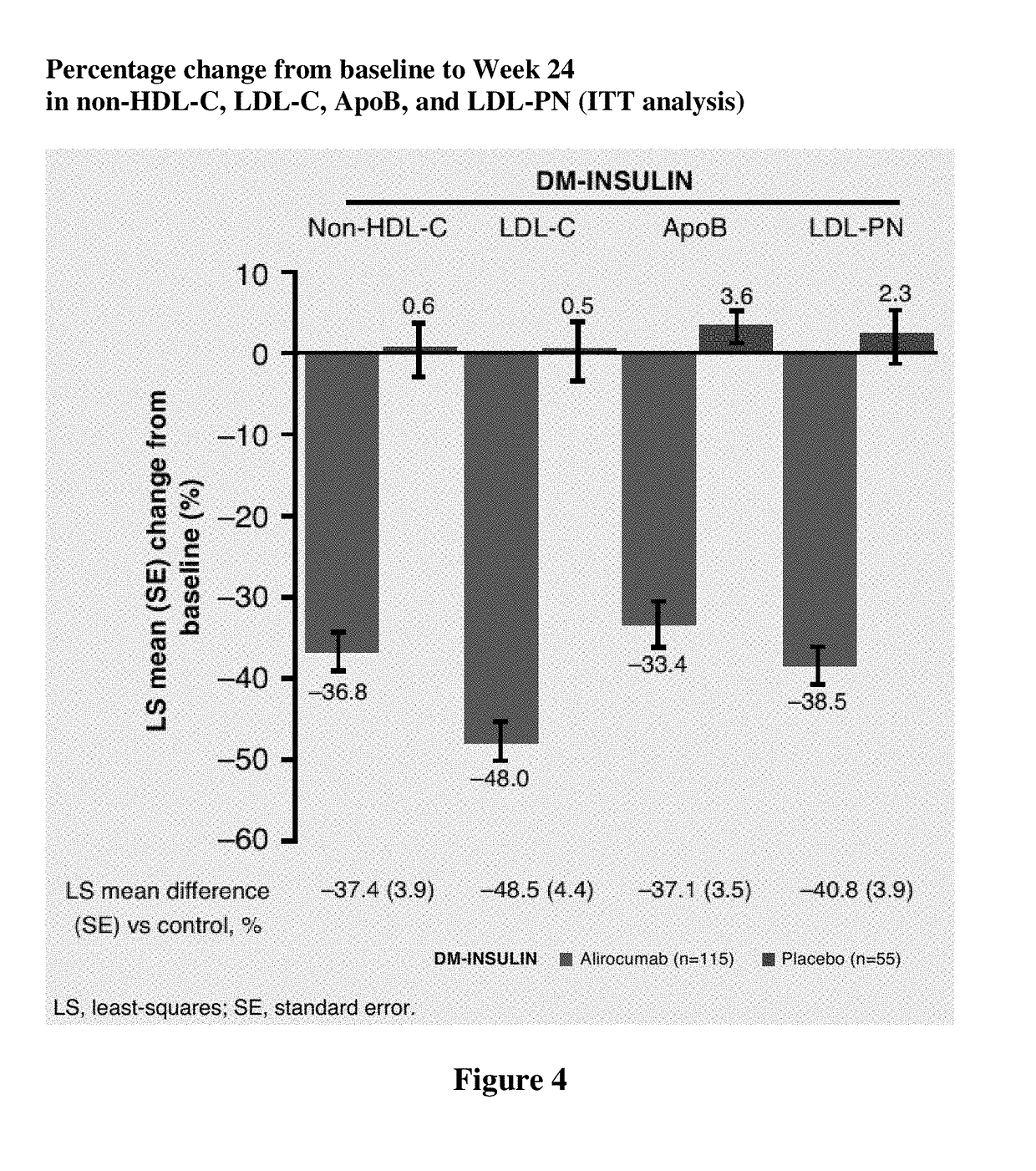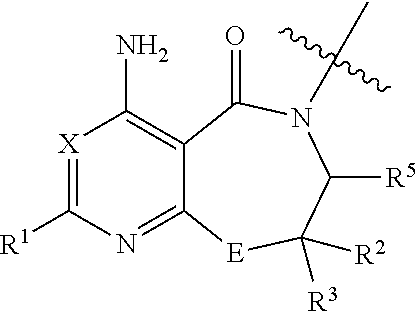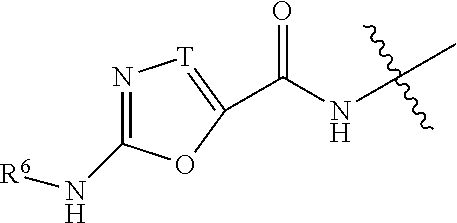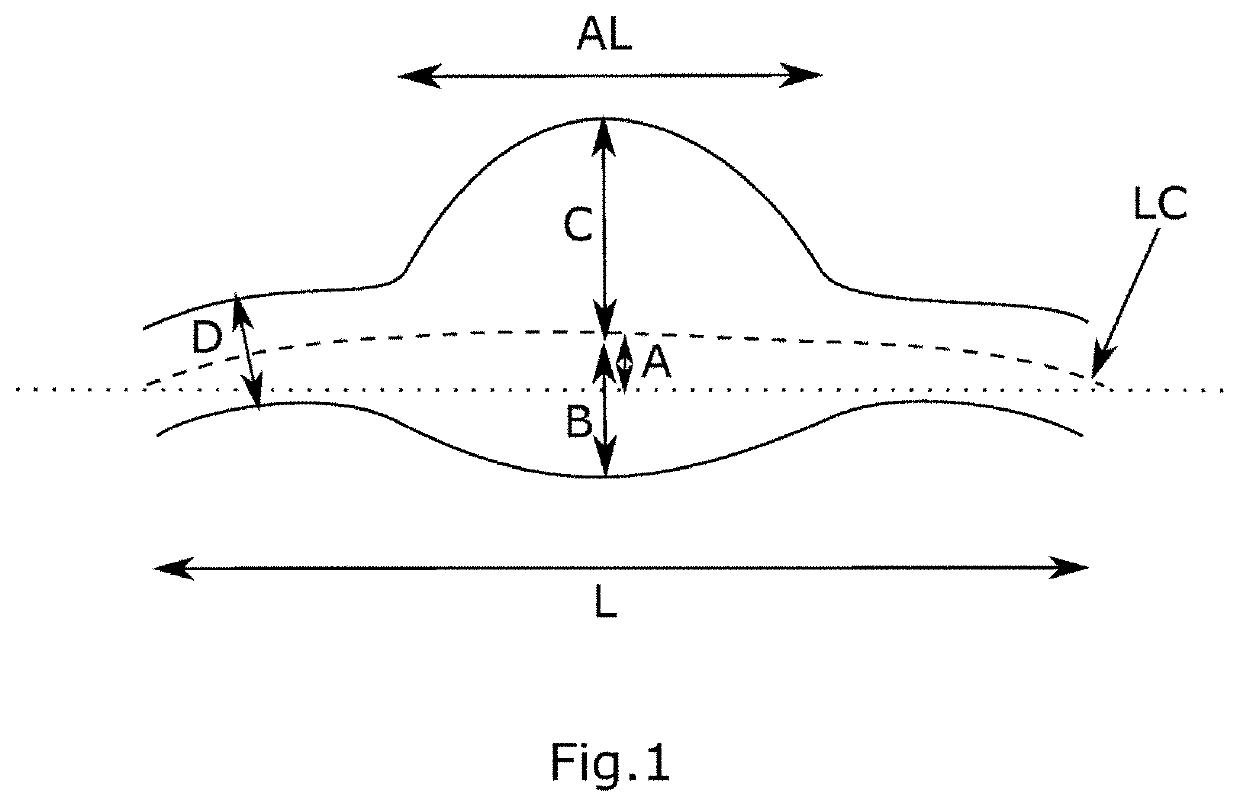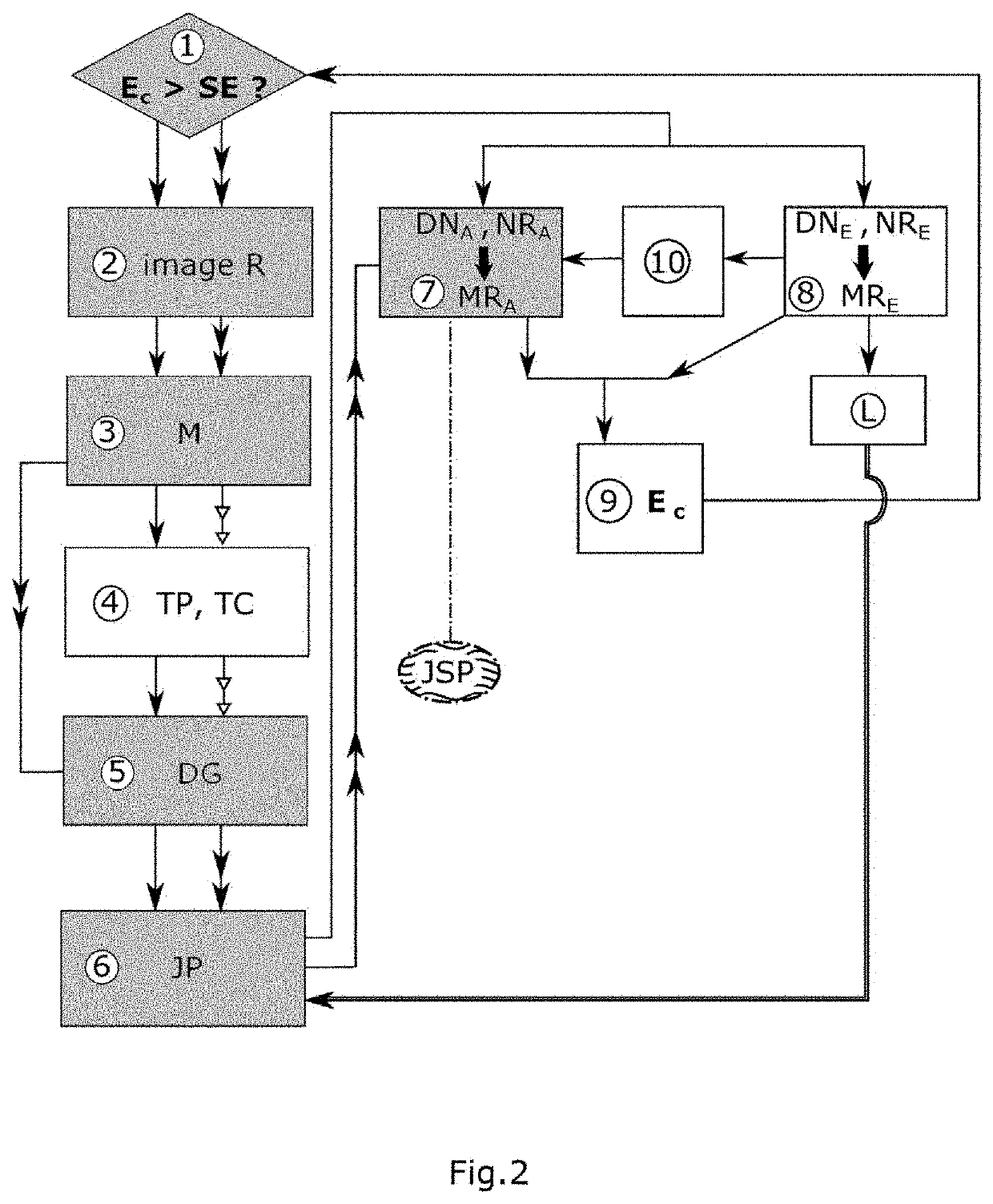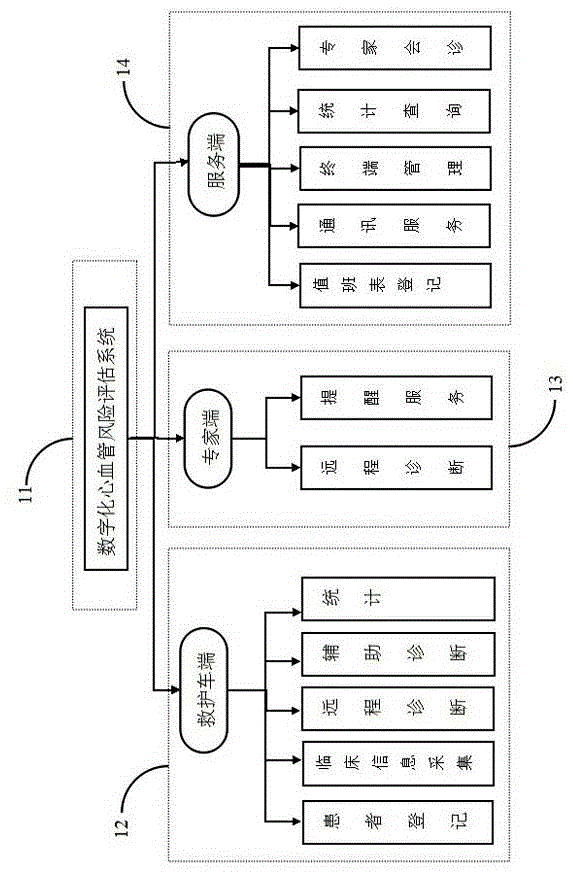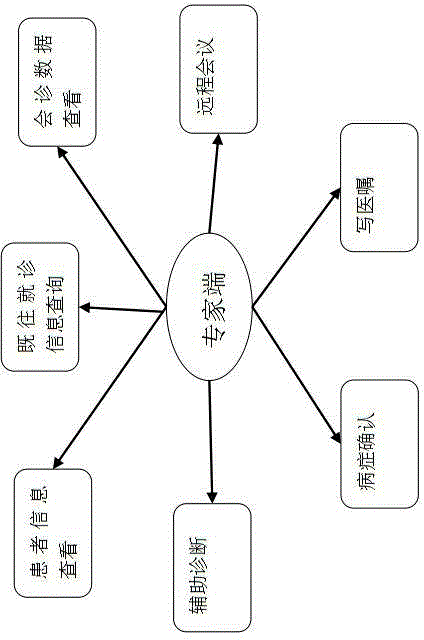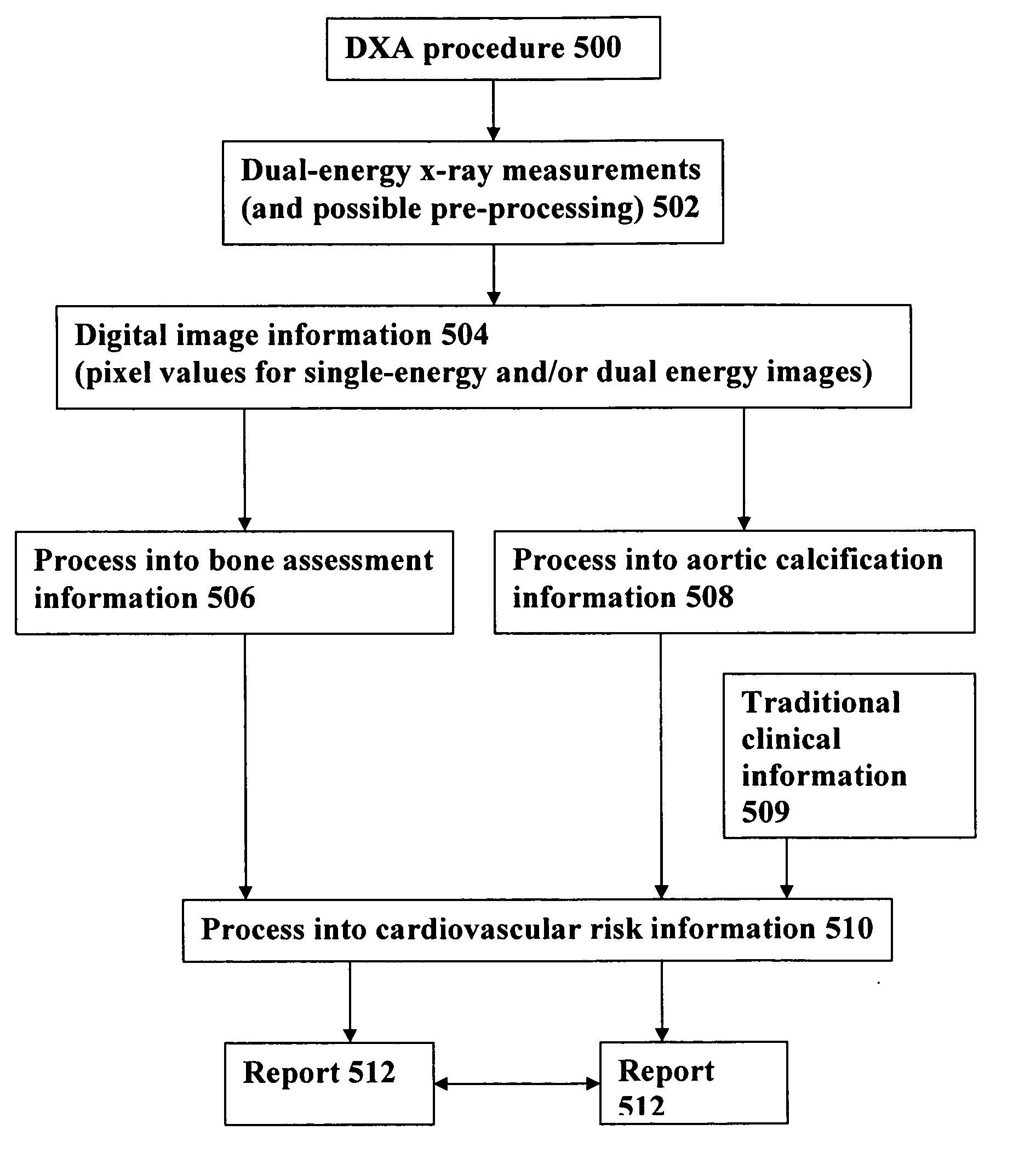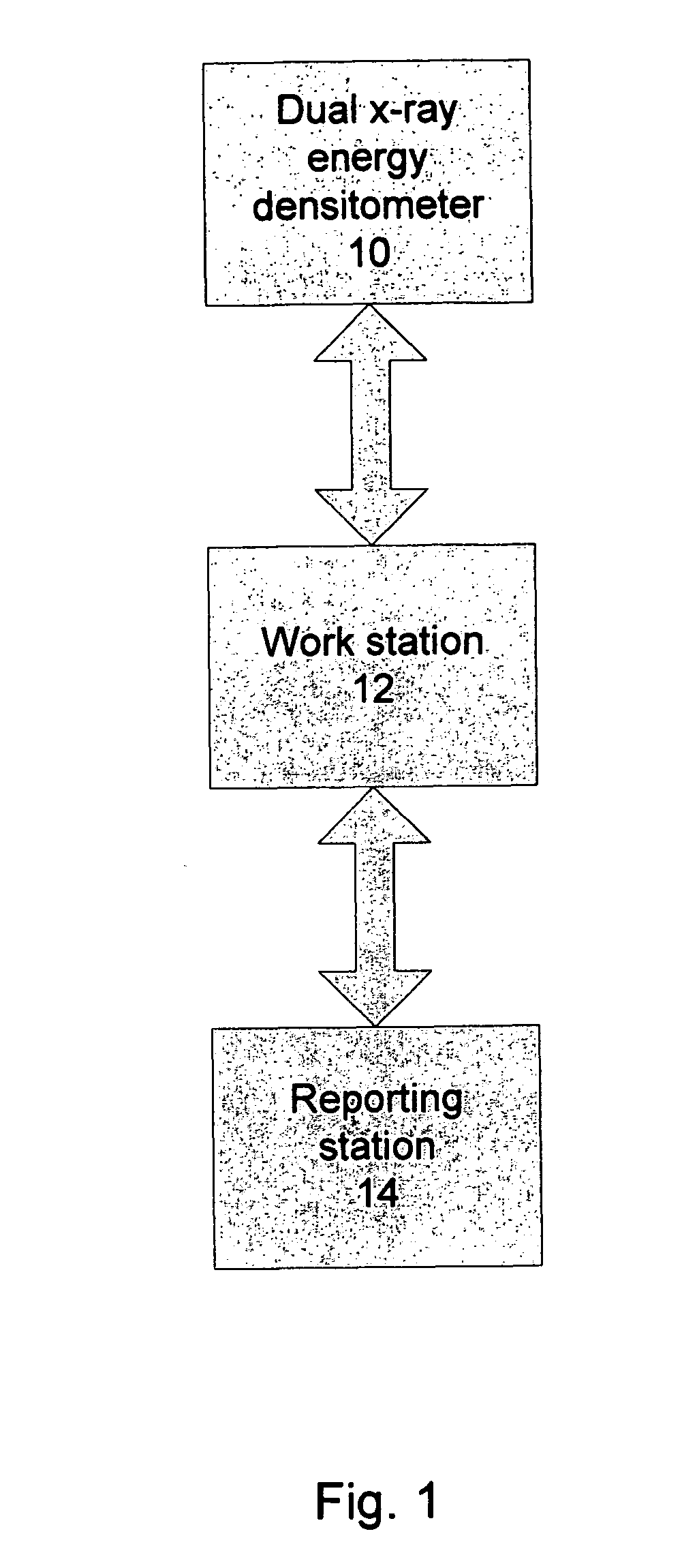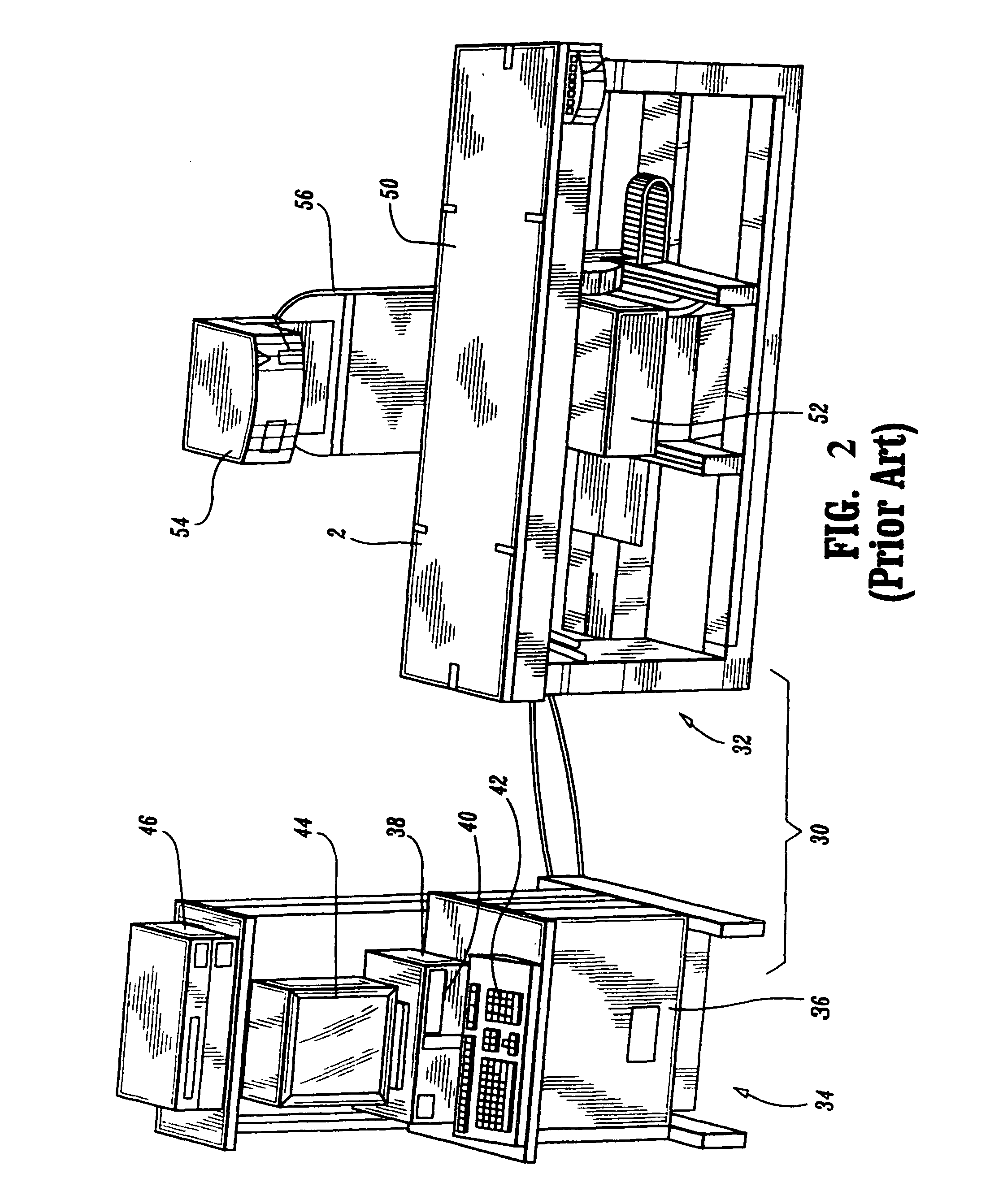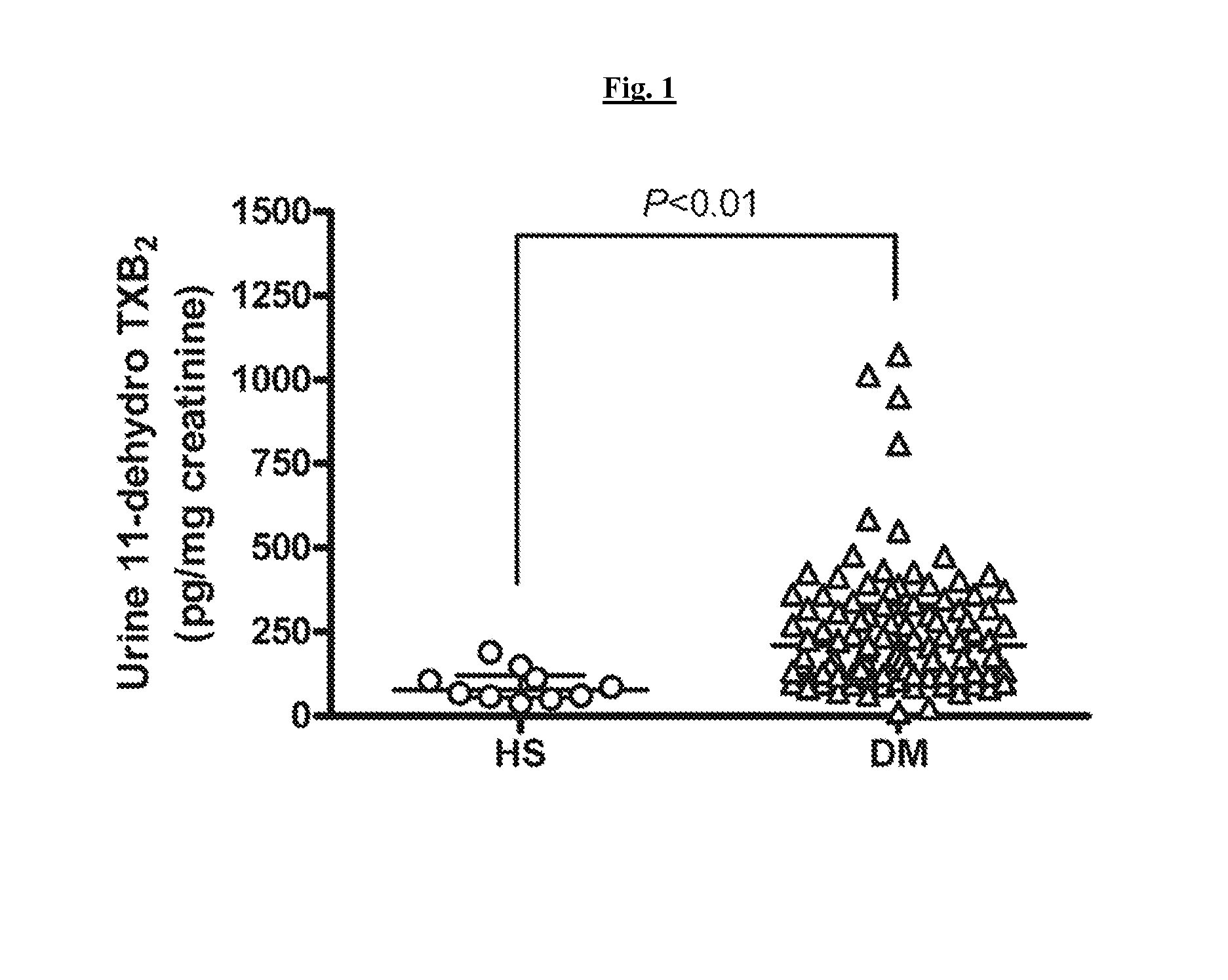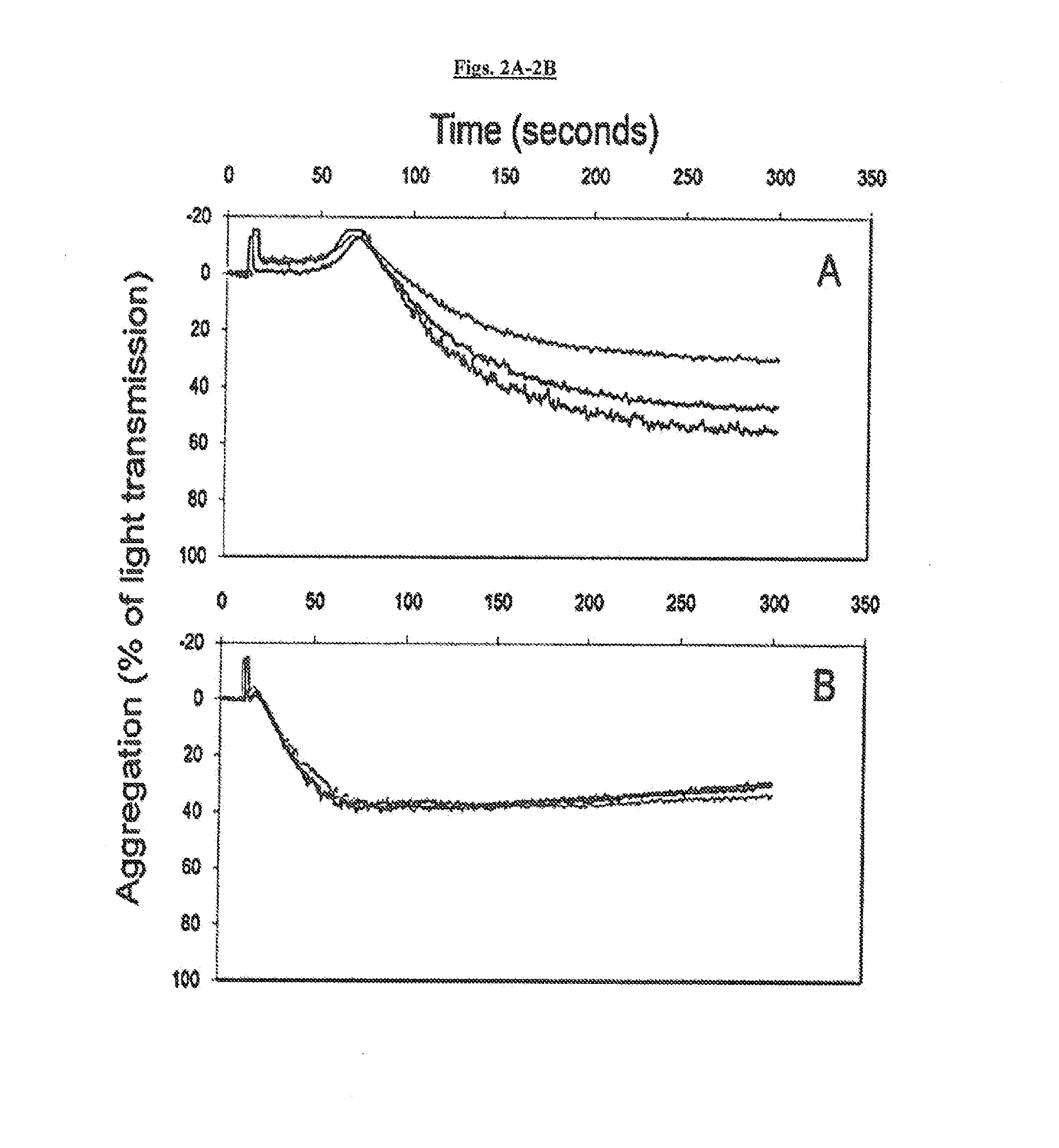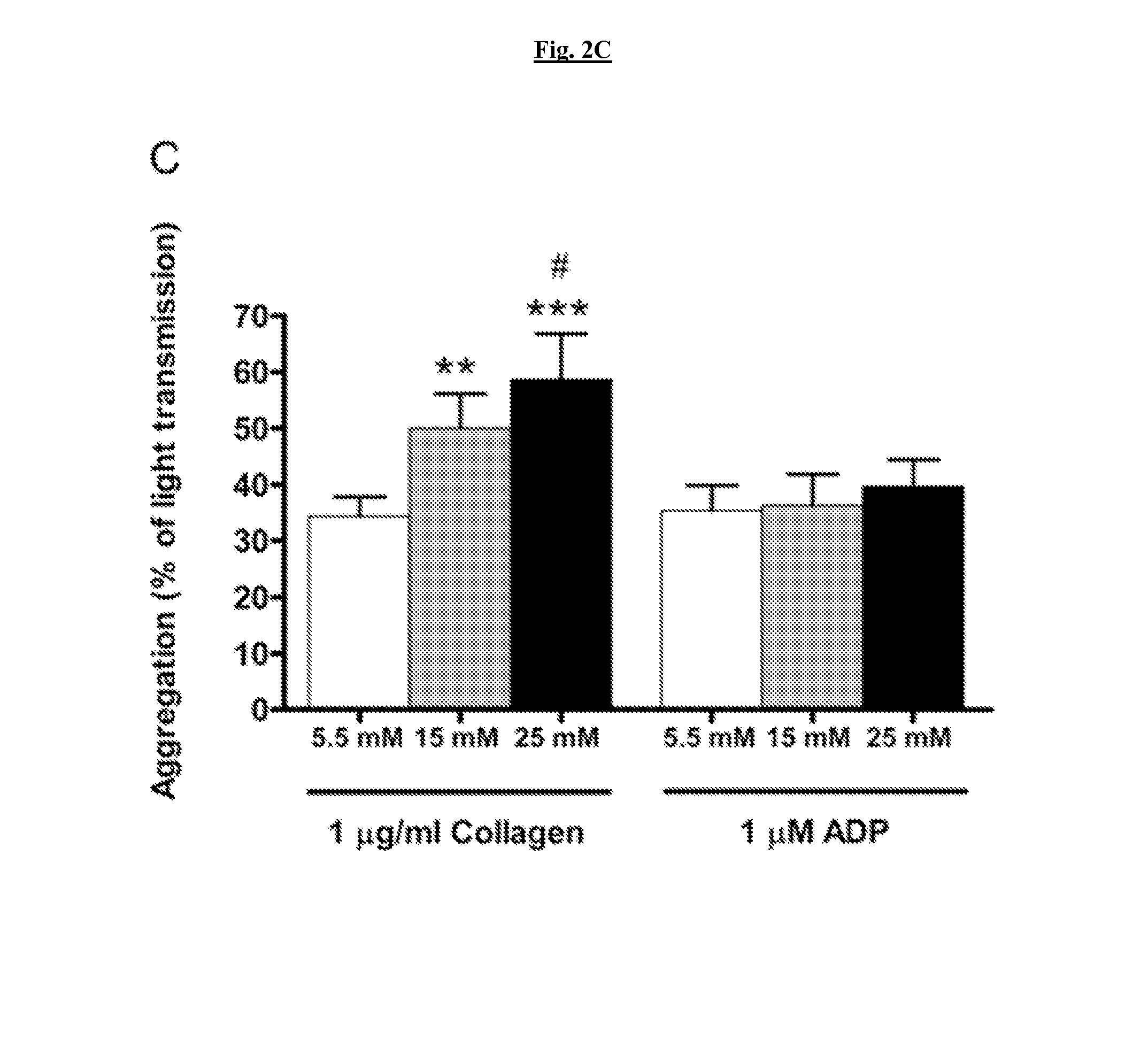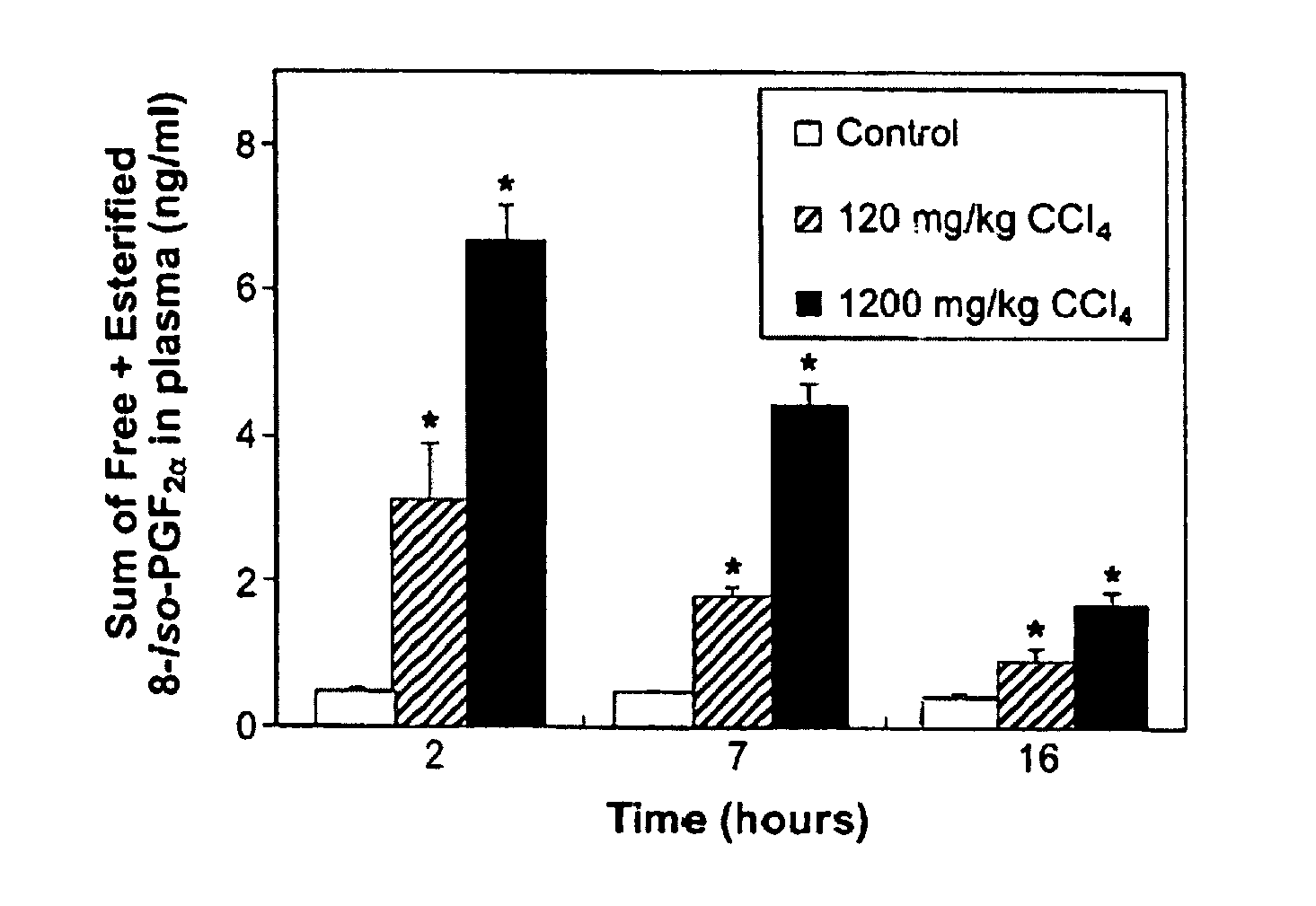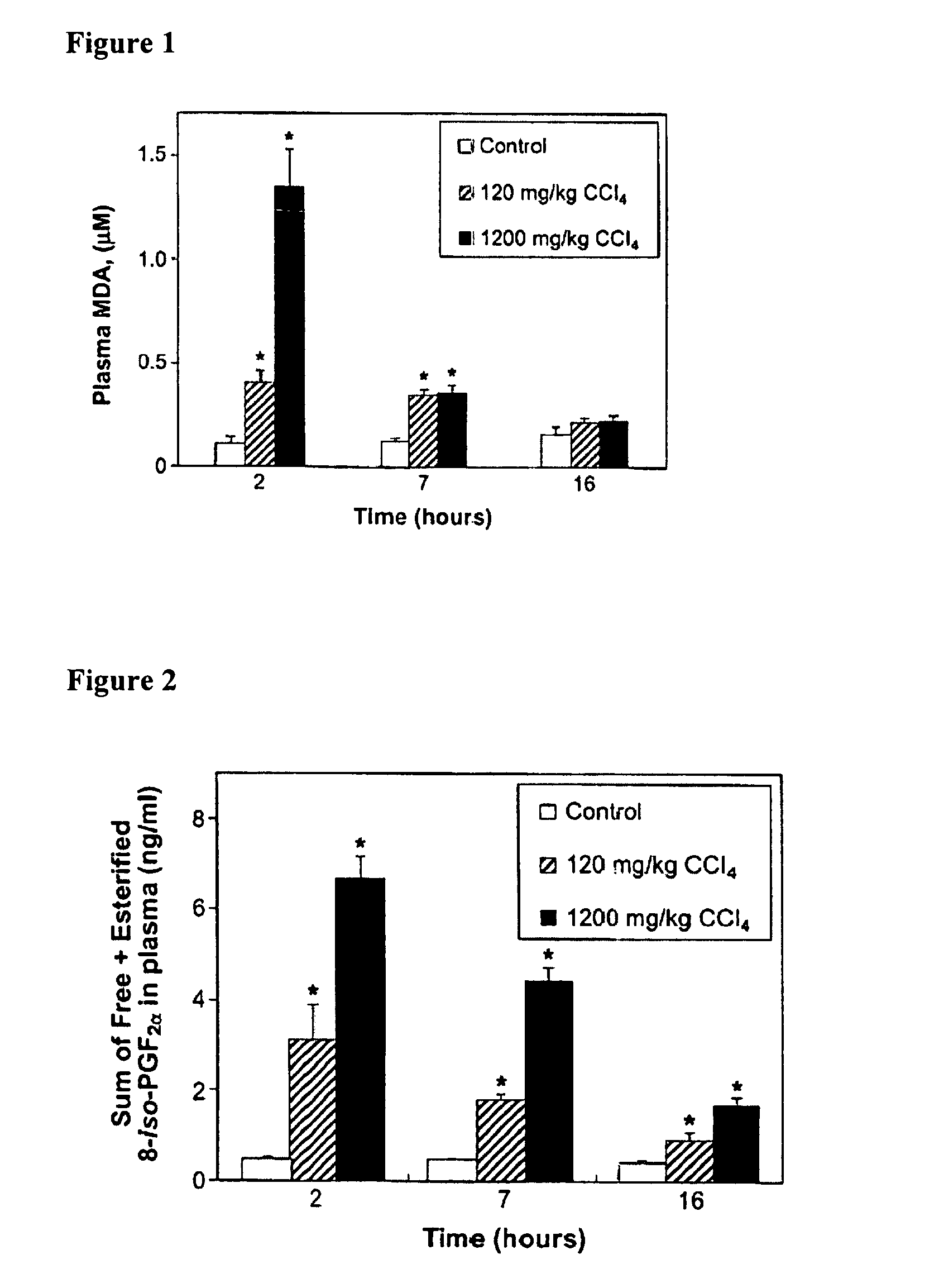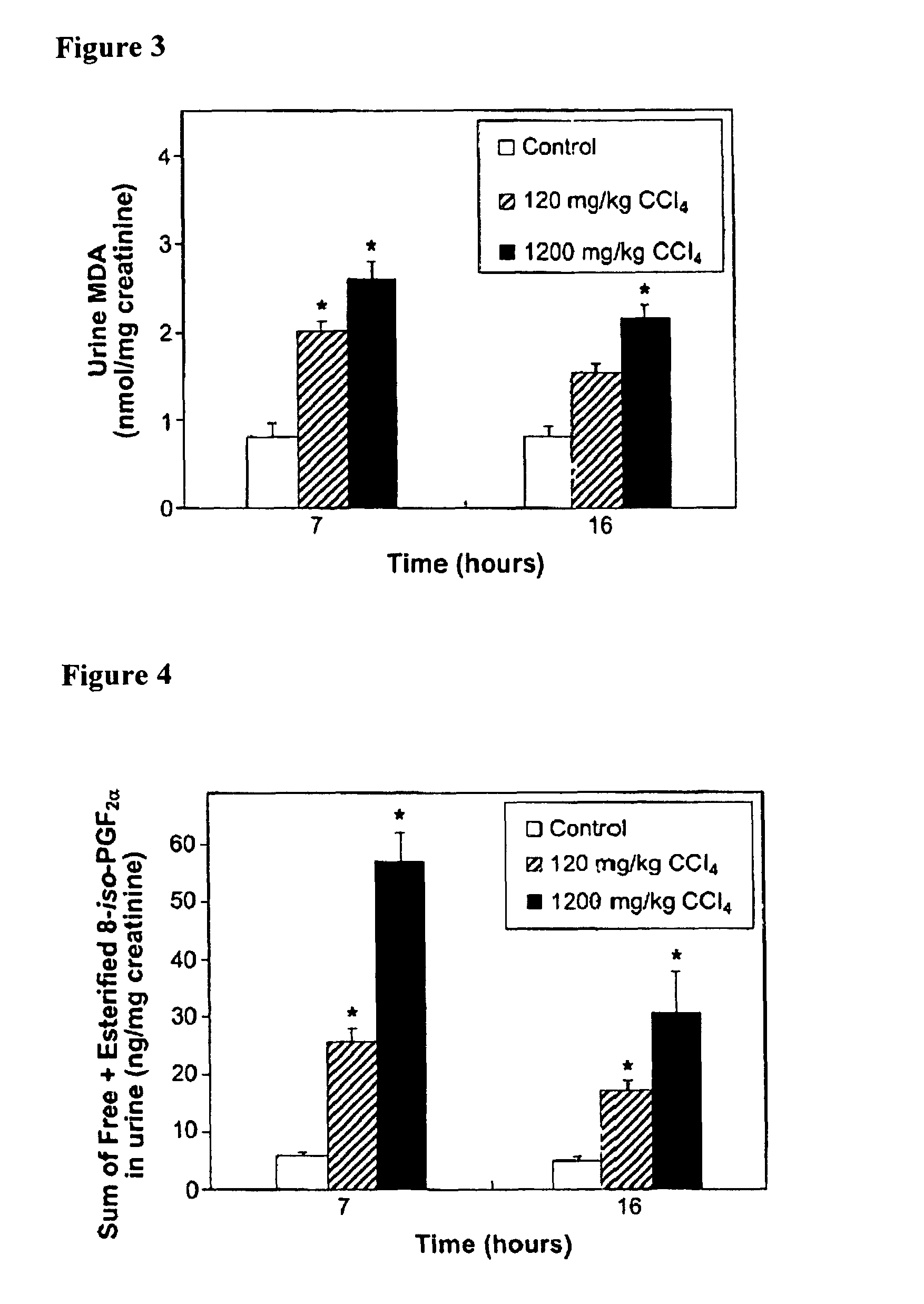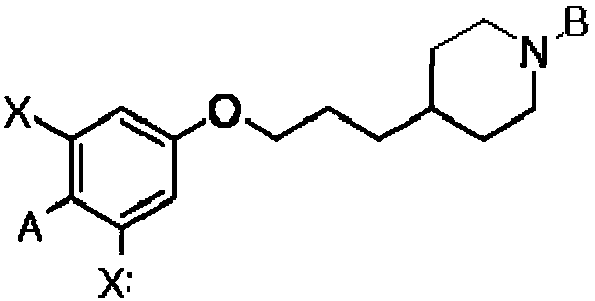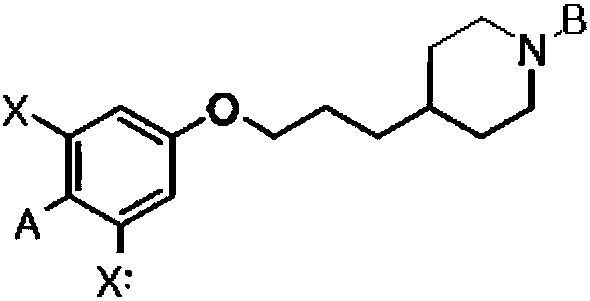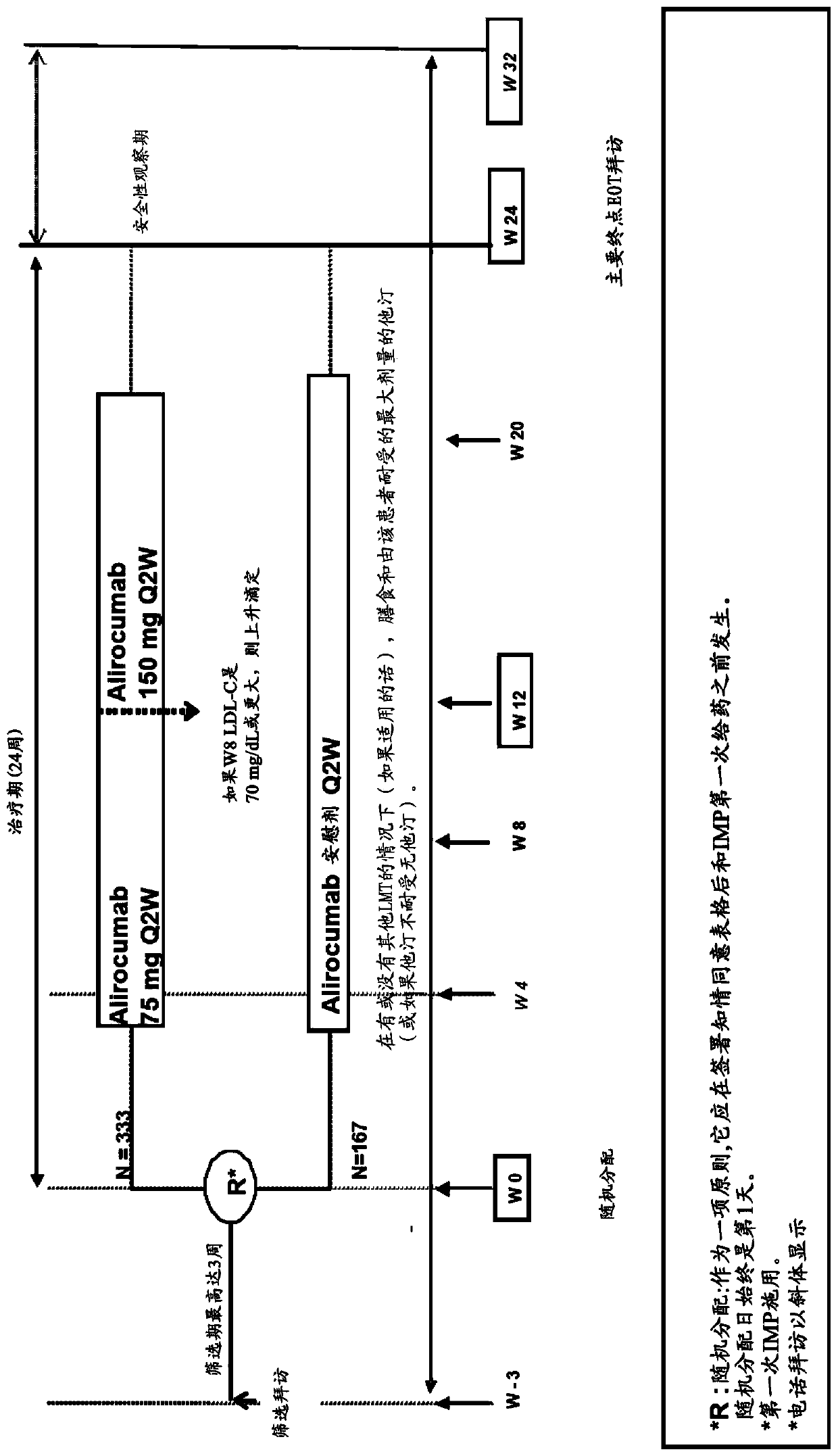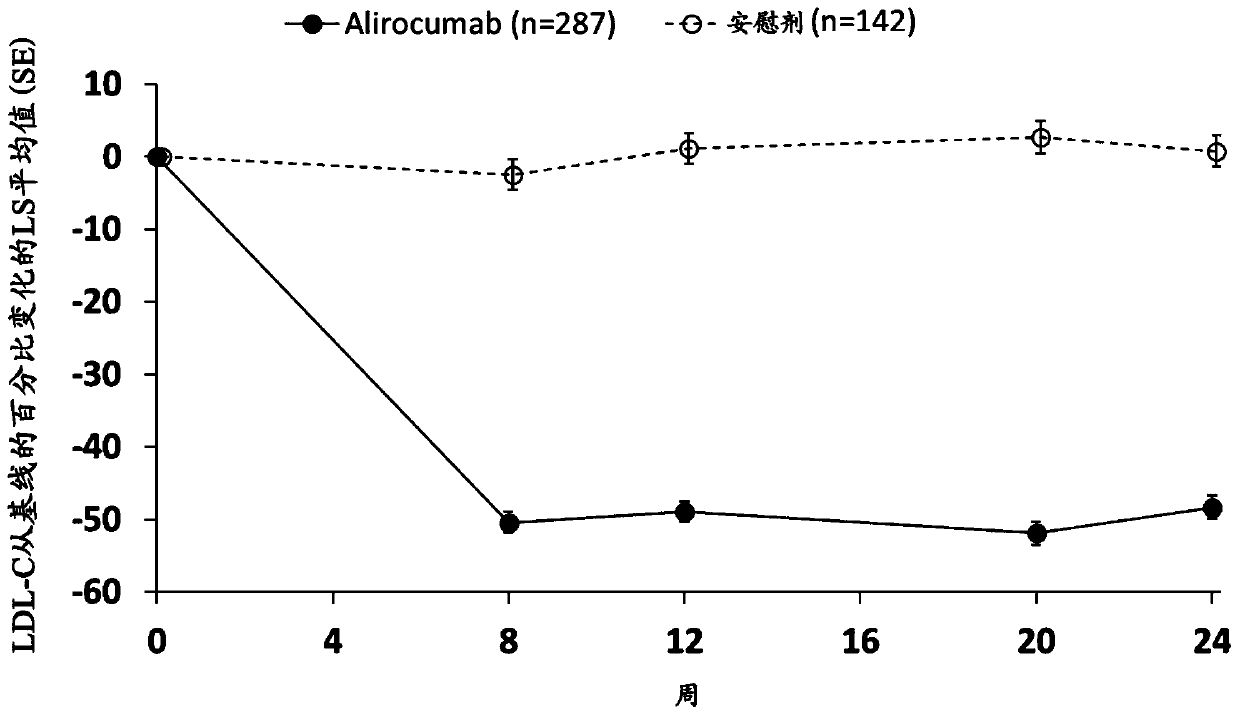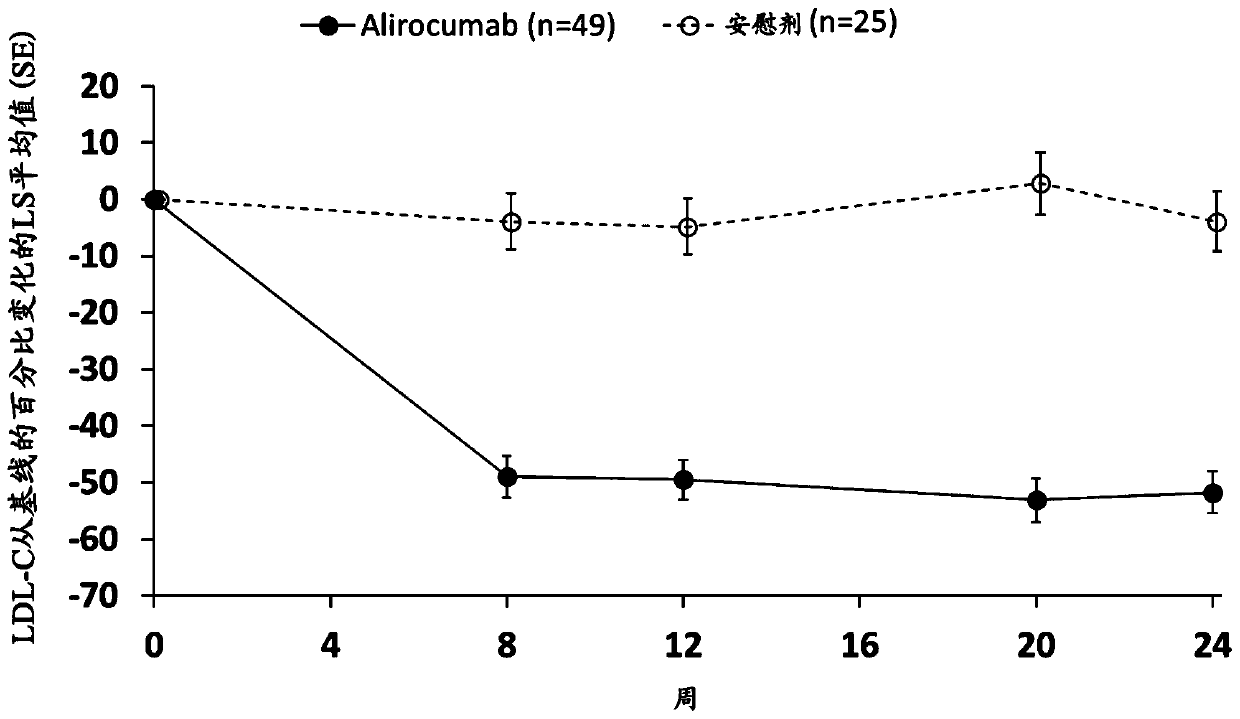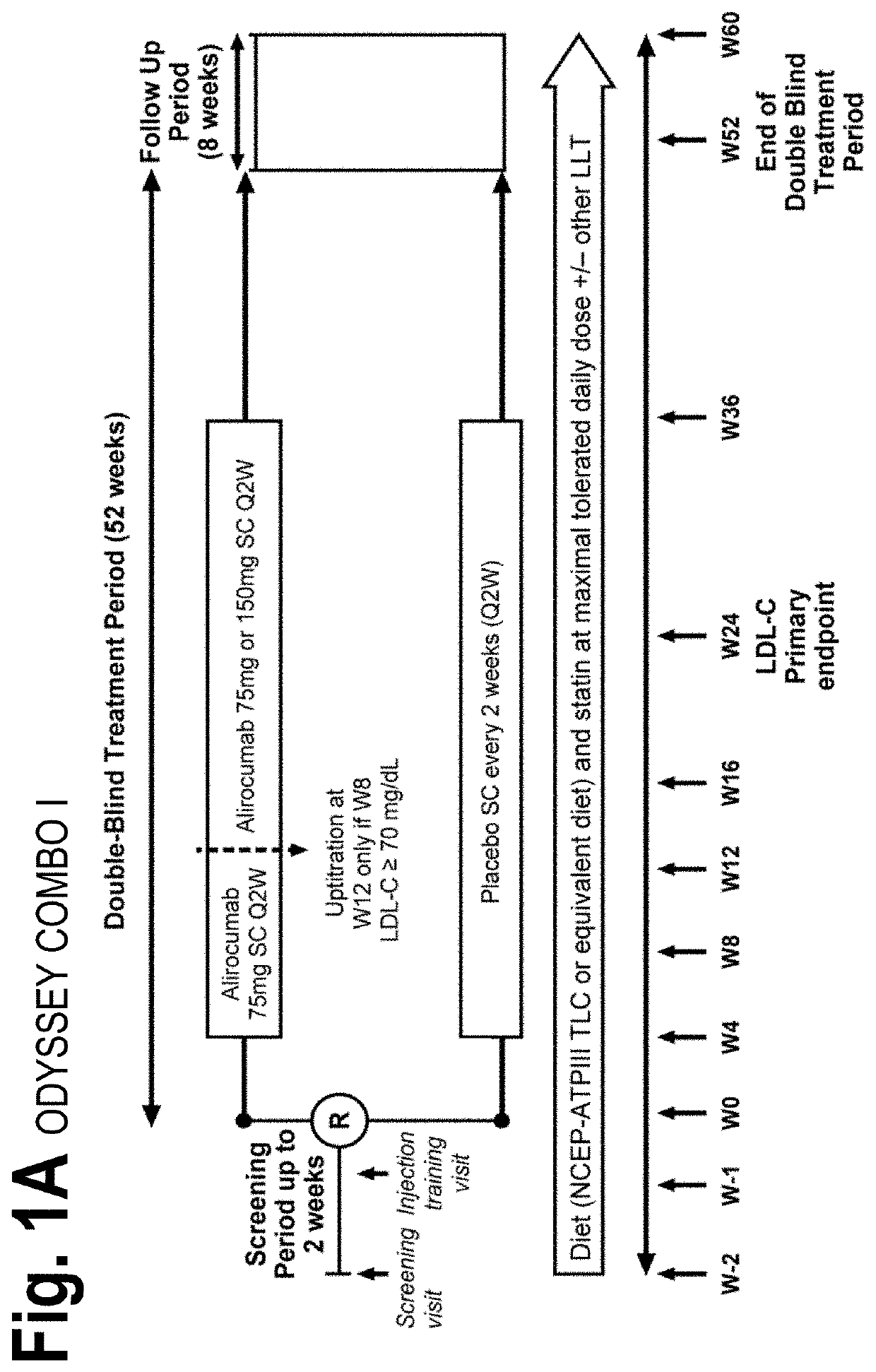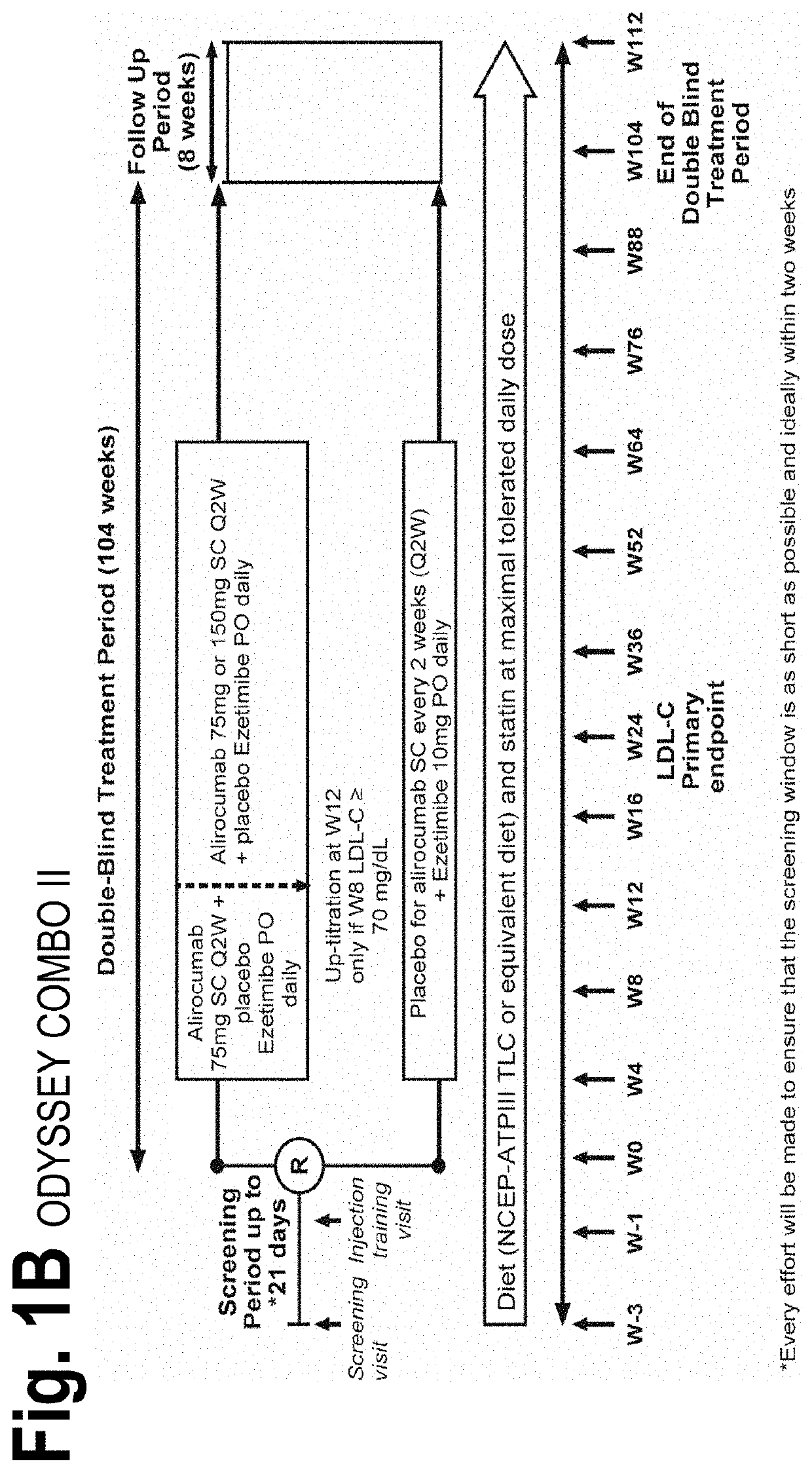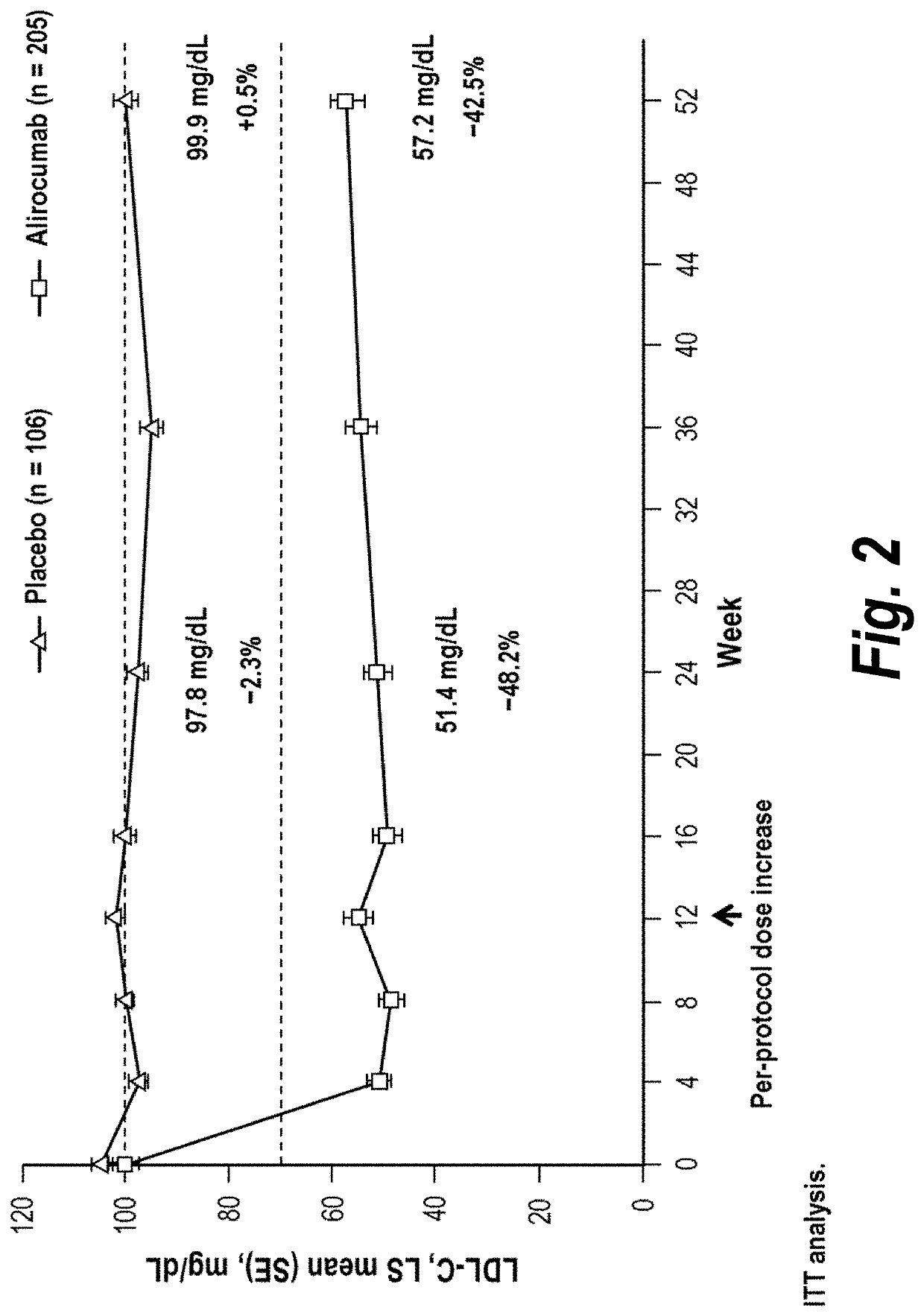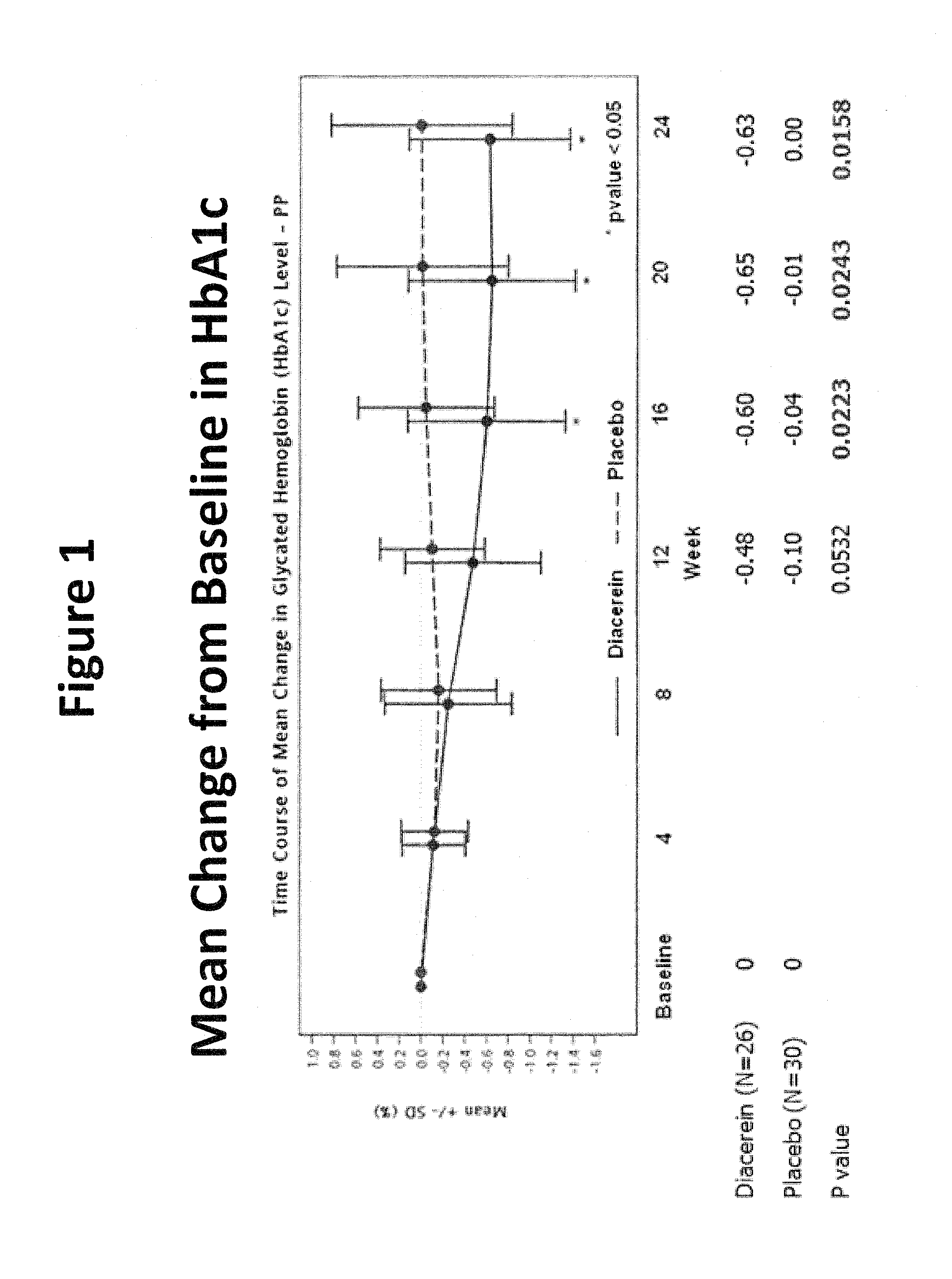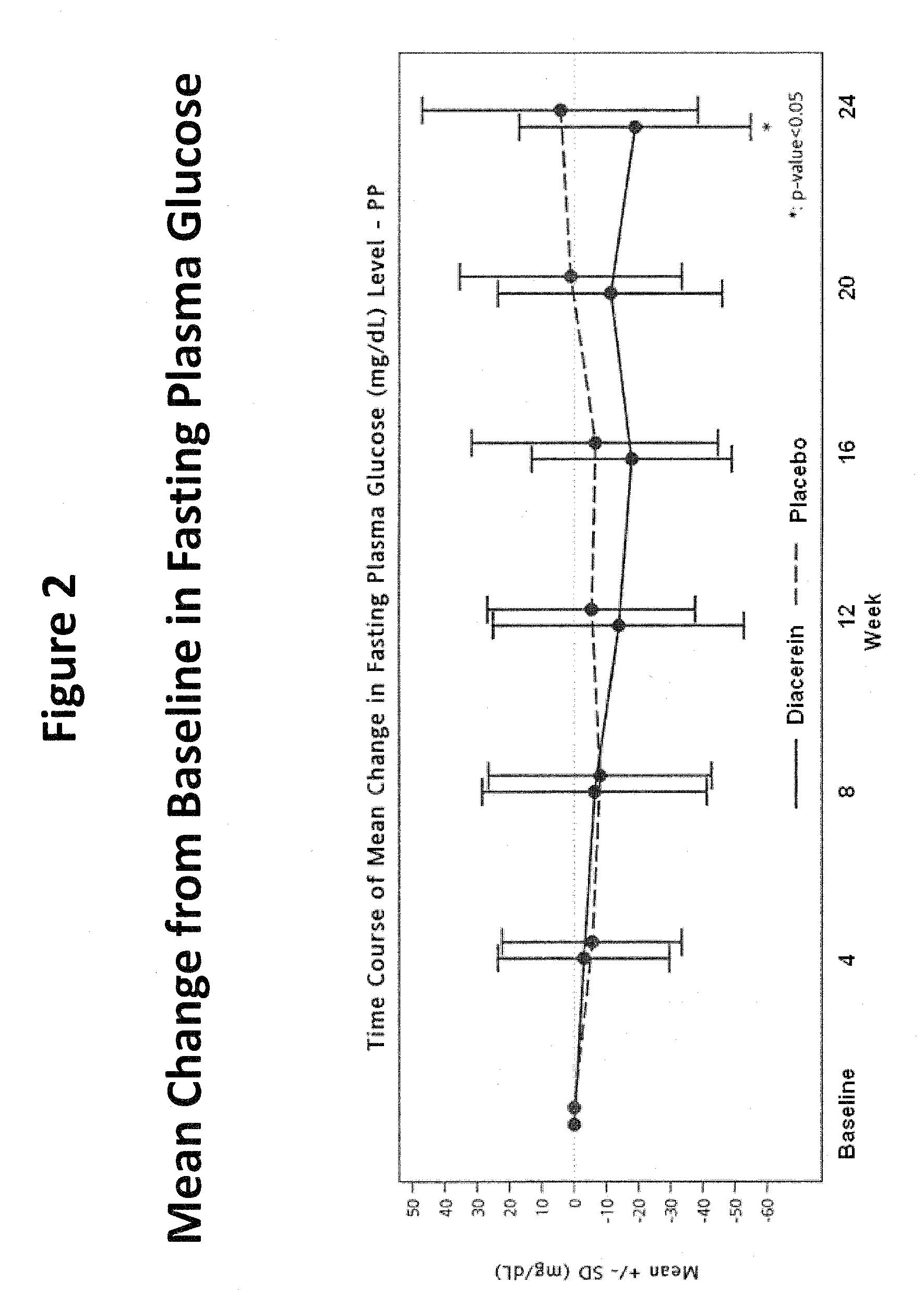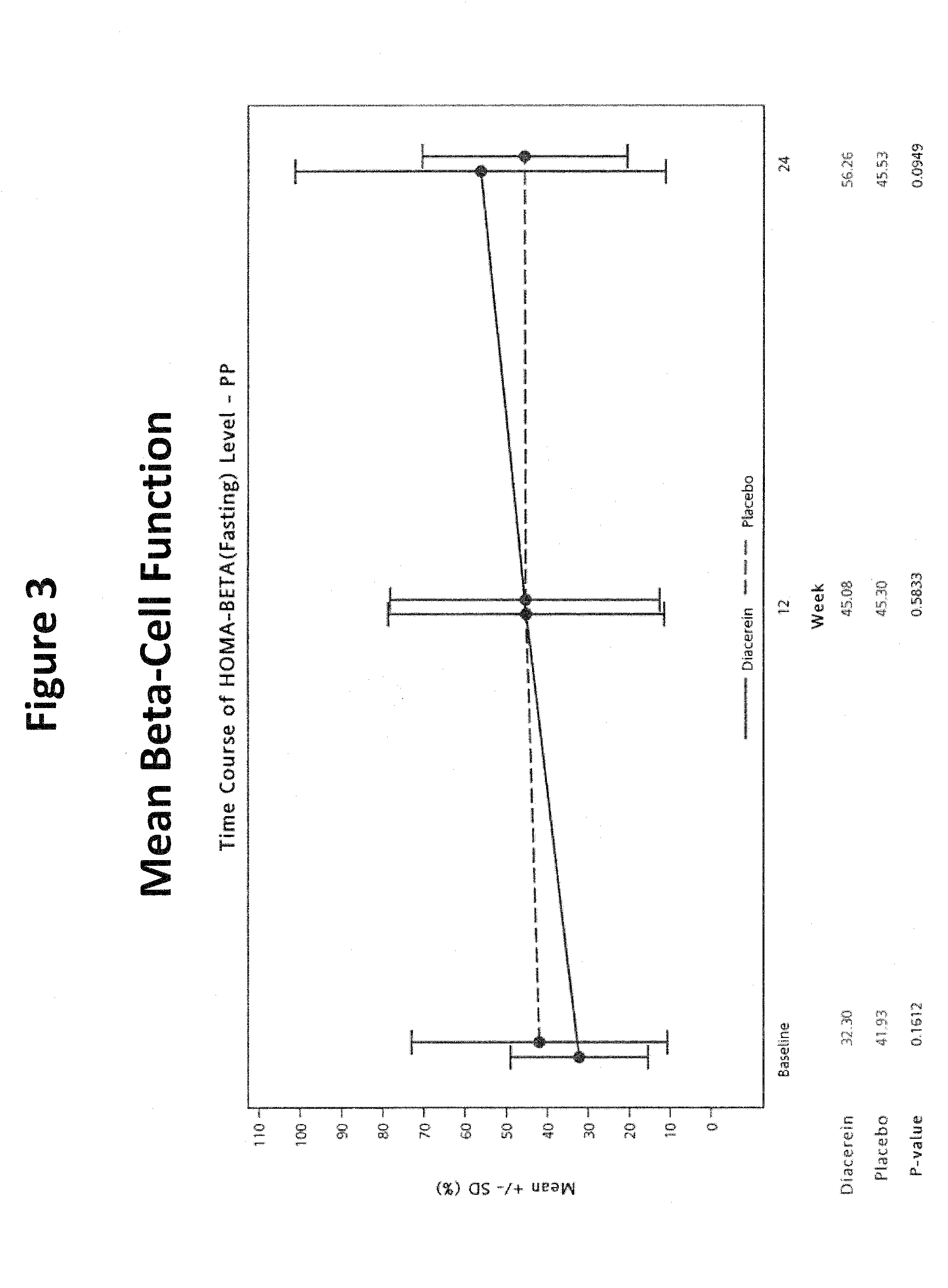Patents
Literature
Hiro is an intelligent assistant for R&D personnel, combined with Patent DNA, to facilitate innovative research.
73 results about "Vascular risk" patented technology
Efficacy Topic
Property
Owner
Technical Advancement
Application Domain
Technology Topic
Technology Field Word
Patent Country/Region
Patent Type
Patent Status
Application Year
Inventor
Method and apparatus for perioperative assessment of cardiovascular risk
A method and apparatus for providing real-time support in interpreting a patient's ECG in order to assess the probability of perioperative cardiovascular risk associated with performing a non-cardiac surgery. The apparatus includes an acquisition unit for acquiring an ECG and a processor for determining whether the ECG has diagnostic statements of risk. From the diagnostic statements of risk, the processor determines the probability of cardiovascular risk associated with the non-cardiac surgery. The probability of cardiovascular risk is displayed on display in the form of an indicator of either major, intermediate, or minor cardiovascular risk.The method includes acquiring a patient's ECG, determining whether the ECG exhibits diagnostic statements of cardiovascular risk, and determining the probability of cardiovascular risk based on the diagnostic statements, and displaying the determined probability of cardiovascular risk.
Owner:GE MEDICAL SYST INFORMATION TECH
Imaging Based Symptomatic Classification Using a Combination of Trace Transform, Fuzzy Technique and Multitude of Features
InactiveUS20120078099A1Improve accuracyMaximum accuracyUltrasonic/sonic/infrasonic diagnosticsMagnetic measurementsGray levelRadiology
A statistical (a) Computer Aided Diagnostic (CAD) technique is described for symptomatic versus asymptomatic plaque automated classification of carotid ultrasound images and (b) presents a cardiovascular risk score computation. We demonstrate this for longitudinal Ultrasound, CT, MR modalities and extendable to 3D carotid Ultrasound. The on-line system consists of Atherosclerotic Wall Region estimation using AtheroEdge™ for longitudinal Ultrasound or Athero-CTView™ for CT or Athero-MRView from MR. This greyscale Wall Region is then fed to a feature extraction processor which uses the combination: (a) Higher Order Spectra; (b) Discrete Wavelet Transform (DWT); (c) Texture and (d) Wall Variability. Another combination uses: (a) Local Binary Pattern; (b) Law's Mask Energy and (c) Wall Variability. Another combination uses: (a) Trace Transform; (b) Fuzzy Grayscale Level Co-occurrence Matrix and (c) Wall Variability. The output of the Feature Processor is fed to the Classifier which is trained off-line.
Owner:ATHEROPOINT
Assessment of cardiovascular risk
ActiveUS20060051873A1Reduce cardiovascular riskIncreased riskDisease diagnosisBiological testingMetaboliteMammal
The instant invention is drawn to methods and compositions useful for the assessment of cardiovascular risk in a mammal. The methods utilize biomarkers including prostanoid metabolites and isoprostanes as sensitive and stable markers of cardiovascular risk. The methods are particularly useful in a mammal that is contemplating undergoing coxib therapy, is undergoing coxib therapy, is undergoing antioxidant therapy, has ceased coxib therapy or has never undergone coxib therapy. The invention also includes kits useful for the assessment of cardiovascular risk in a mammal.
Owner:THE TRUSTEES OF THE UNIV OF PENNSYLVANIA
Cardiovascular Risk Event Prediction and Uses Thereof
InactiveUS20130085079A1Improve performanceEasy to usePeptide librariesNucleotide librariesVascular riskCvd risk
Owner:SOMALOGIC INC
Measuring troponin antibodies to assess cardiovascular risk
This invention relates to the field of myocardial disorders. It discloses that antibodies to a cardiac troponin found in a sample obtained from an individual can be used as a diagnostic marker, especially in the assessment of an individual's risk of developing a myocardial disorder. A method aiding in the assessment of an individual's risk of developing a myocardial disorder, comprising measuring in vitro antibodies to a cardiac troponin and optionally one or more other marker useful in assessing an individual's risk of developing a myocardial disorder, and correlating the value or the values obtained to the individual's risk of developing a myocardial disorder is decribed.
Owner:ROCHE DIAGNOSTICS OPERATIONS INC
Cardio- and renoprotective antidiabetic therapy
InactiveUS20140274889A1Reduce occurrenceReduce riskBiocidePeptide/protein ingredientsVascular riskCvd risk
The present invention relates to a certain DPP-4 inhibitor for use in cardio- and / or renoprotective therapy, including in patients at high vascular risk.
Owner:BOEHRINGER INGELHEIM INT GMBH
Macrophage migration inhibitory factor as a marker for cardiovascular risk
InactiveUS7445886B2Microbiological testing/measurementPeptide preparation methodsAssayHematological test
Macrophage migration inhibitory factor (MIF) is a clinically useful biochemical marker of cardiovascular risk. Risk assessment includes the step of detecting in the blood of a person MIF concentration as a marker of cardiovascular risk for the person. The method may further comprise the step of assigning to the person a cardiovascular risk metric proportional to the MIF concentration, and / or prescribing for the person a cardiovascular treatment modality in accordance with the MIF concentration. The method is useful as a primary screen, and may be used in conjunction with or as a substitute for additional tests, such as a stress test, CRP assay, LDL assay, etc. The detecting step may be repeated over time intervals and / or treatment to monitor change in cardiovascular risk for the person over time and / or treatment.
Owner:COOPER INST THE +1
Simulating Patient-Specific Outcomes
InactiveUS20090150134A1Analogue computers for chemical processesHospital data managementVascular riskBiology
The invention encompasses systems, methods, and apparatus for predicting clinical outcomes and monitoring an individual's response to a therapeutic regimen. The invention further encompasses methods for predicting cardiovascular risk based a genetic marker status and methods for modifying a computer to reflect genetic data and for incorporating genetic markers into a virtual population.
Owner:ENTELOS INC
Retinal image analysis systems and methods
InactiveUS8687862B2Improve reliabilityMinimise deleterious aspect of retinal imageImage enhancementImage analysisDiabetes mellitusVascular disease
A platform is proposed for automated analysis of retinal images, for obtaining from them information characterizing retinal blood vessels which may be useful in forming a diagnosis of a medical condition. A first aspect of the invention proposes that a plurality of characteristics of the retina are extracted, in order to provide data which is useful for enabling an evaluation of cardiovascular risk prediction, or even diagnosis of a cardiovascular condition. A second aspect uses fractal analysis of retinal images to provide vascular disease risk prediction, such as, but not limited to, diabetes and hypertension.
Owner:NAT UNIV OF SINGAPORE
Cardiac hormones for assessing cardiovascular risk
Owner:ROCHE DIAGNOSTICS OPERATIONS INC
Use of Genetic Determinants in Cardiovascular Risk Assessment
The invention generally provides compositions and methods of using a subject's genetic information for the selection of prophylactic or therapeutic agents and treatment regimens, and related methods for assaying the risk of an adverse cardiovascular event in the patient.
Owner:UNIV OF FLORIDA RES FOUNDATION INC
Imaging based symptomatic classification using a combination of trace transform, fuzzy technique and multitude of features
InactiveUS8532360B2Improve accuracyMaximum accuracyUltrasonic/sonic/infrasonic diagnosticsMagnetic measurementsCarotid atherosclerosis2d ultrasound
Owner:ATHEROPOINT
Gene signatures
InactiveUS20110053167A1Increased riskAccurate diagnosisMicrobiological testing/measurementDisease diagnosisBiophysicsInsulin resistance
The present invention relates generally to a new cluster of correlating molecules in a tissue or at least one cell of a tissue for instance a cell of a blood tissue, preferably such myeloid cells and of identifying the condition of the genes expression said correlating molecules or of the expression levels of said molecules in a method or system for identifying obesity and the risk at obesity-related metabolic diseases such as the obesity associated cardiovascular risk or obesity-related insulin resistance. This system of method provides information on how to modulate the correlating molecules to treat or prevent obesity and to prevent the obesity-related metabolic diseases.
Owner:KATHOLIEKE UNIV LEUVEN
Method and System to Provide Personalized Pharmaceutical Compositions and Dosages
InactiveUS20140037739A1High SD ratioLowering indexBiocideData processing applicationsVascular riskCvd risk
Provided is a method for assessing cardiovascular risk in Metabolic Syndrome and Type 2 Diabetes patients. The method involves obtaining data from a Type 2 diabetes patient or a Metabolic Syndrome patient and determining a Fayad / Schentag index which includes a Glucose Supply Index (S) to an Insulin Demand Index (D) ratio. The Fayad / Schentag index is used in scoring cardiovascular risks of Metabolic Syndrome patients and for recommending and implementing therapeutic interventions that can be shown to lower cardiovascular risk
Owner:BRIGHT FR V +1
Macrophage migration inhibitory factor as a marker for cardiovascular risk
InactiveUS20050054117A1Microbiological testing/measurementDisease diagnosisAbnormal macrophageTreatment modality
Macrophage migration inhibitory factor (MIF) is a clinically useful biochemical marker of cardiovascular risk. Risk assessment includes the step of detecting in the blood of a person MIF concentration as a marker of cardiovascular risk for the person. The method may further comprise the step of assigning to the person a cardiovascular risk metric proportional to the MIF concentration, and / or prescribing for the person a cardiovascular treatment modality in accordance with the MIF concentration. The method is useful as a primary screen, and may be used in conjunction with or as a substitute for additional tests, such as a stress test, CRP assay, LDL assay, etc. The detecting step may be repeated over time intervals and / or treatment to monitor change in cardiovascular risk for the person over time and / or treatment.
Owner:COOPER INST THE +1
Cardiovascular Risk Event Prediction and Uses Thereof
InactiveUS20150168423A1Cardiovascular events may be avoidedPropensity for such events can be accurately determinedHealth-index calculationMicrobiological testing/measurementVascular riskBiomarker (petroleum)
Owner:SOMALOGIC INC
Effects of low n-6:n-3 fatty acid ratio from two dietary sources on plasma and tissue lipid composition
Health benefits from low n-6:n-3 fatty acid (FA) ratio on cardiovascular risk have been shown. However, the impact of the source of n-3 FAs has not been fully investigated. Our purpose was to investigate cardiovascular benefits of oils with a low ratio of n-6:n-3 FAs, but different sources of n-3 FAs. Mice were divided into 3 groups (n=7) and fed a diet supplemented with either a fish or flaxseed oil-based ‘designer oils’ with an approximate n-6:n-3 FA ratio of 2 / 1 or with a safflower-oil-based diet with a ratio of 25 / 1, for 16 weeks. Plasma lipids and fatty acid profile of the liver and heart tissues were characterized. Plasma cholesterol levels were reduced in both fish and flax groups by 27% and 36%, respectively, as compared to controls at endpoint. The levels of EPA and DHA in liver phospholipids were significantly increased in both fish and flax groups as compared to the control group, with more profound increases in the fish group. Arachidonic acid levels were similarly decreased in the liver tissues from both fish and flax groups as compared to controls. Our data indicates that health benefits may be achieved by lowering dietary n-6:n-3 FA even in a high fat diet medium.
Owner:MOGHADASIAN MOHAMMED
Methods for treating hyperlipidemia in diabetic patients by administering a pcsk9 inhibitor
InactiveUS20190031774A1Reduction of ldl c levelLower Level RequirementsPeptide/protein ingredientsMetabolism disorderAntigenAntiendomysial antibodies
Provided are methods for treating high cardiovascular risk patients with hypercholesterolemia and type 1 or type 2 diabetes mellitus receiving insulin therapy. These methods generally comprise administering to a patient a pharmaceutical composition comprising an antibody or antigen binding fragment, thereof, which specifically binds hPCSK9 antibody, in combination with insulin therapy.
Owner:SANOFI BIOTECH SAS
Inhibitors of diacylglycerol O-acyltransferase 1 (DGAT-1) and uses thereof
InactiveUS8962618B2Low systemic exposureReduce riskBiocideMetabolism disorderDiseaseHypertriglyceridemia
The invention pertains to the use of fused bicyclo heterocyclic adducts of thiohdroxy pridines or primidines as diacylglycerol O-acyltransferase 1 DGAT-1 inhibitors to treat hyperlipidiemias and various diseases and disorders associated therewith. Other conditions also can be ameliorated or avoided, such as high postprandial triglycerides or diet-related hypertriglyceridemia, cardiovascular risk associated with excessive triglycerides, and insulin resistance / glucose intolerance in overweight patients, those with diabetes or other glucose metabolic disorders such as Syndrome X and / or polycystic ovary disease.
Owner:METABASIS THERAPEUTICS INC
System and method for evaluating vascular risks
ActiveUS20190371473A1Method is fastImprove accuracyHealth-index calculationMedical automated diagnosisRisk modelDecision taking
A method (and the associated system) for risk evaluation in a vascular region of interest V are provided, making it possible, based on a fluidic study and / or on a treatment algorithm using a learning method, to generate risk models MR predictively indicating the risk level NR for the occurrence of events such as: occurrence and rupture of an aneurysm, coarctation, etc., and the associated anatomical areas. The models MR are intended to serve as an assistance support for the medical decision-making of a physician.
Owner:CASIS CARDIAC SIMULATION & IMAGING SOFTWARE
Digital cardiovascular risk evaluation system
InactiveCN104915576AReduce mortalityReach imSpecial data processing applicationsEngineeringEmergency medicine
A digital cardiovascular risk evaluation system comprises an emergency vehicle terminal, a specialist terminal, a background terminal and a catheterization room terminal, all of which are connected by a mobile internet; the emergency vehicle terminal is bound with a mobile device, a client program installed on the mobile device can obtain patient data from a detector through a special interface so as to perform intelligent diagnosis and send the intelligent diagnosis to the background terminal by applying a consultation, and the background terminal saves and sends the intelligent diagnosis to the specialist terminal; a specialist guides on-vehicle doctors to rescue and performs judgment according to data sent by the specialist terminal; if the patient needs to directly enter a catheterization room without emergency treatment, the judgment is sent back the background terminal, the background terminal saves and sends the judgment to the emergency vehicle terminal, and meanwhile, the background terminal notifies that the catheterization room terminal prepares for interventional recanalization operation. Therefore, time is won for the patient, and the life of the patient is prolonged.
Owner:BEIJING HUIMOR TECH +1
Method And Device For Analyzing The Retinal Vessels By Means Of Degital Images
ActiveUS20080107310A1Improve abilitiesReduce physical laborImage enhancementImage analysisData setBlood vessel
It is the object of a method and apparatus for retinal vessel analysis based on digital images to enhance the ability to discriminate between healthy vessel states and at-risk vessel states while reducing manual effort and saving time in order to allow individual vascular risk, particularly stroke risk, to be determined in a more reliable manner and with fewer subjective systematic and random errors. The vessel segment diameter, type of vessel and the image coordinates are determined for a series of adjoining vessel segments along vessel portions in a measurement zone surrounding the papilla and are stored by vessel segment with reference to the evaluated image, to a reference image recorded with a time offset, and to a displacement vector that is determined for the vessel segment between the reference image and an evaluated comparison image. Comparison measurements are carried out only on identical vessel segments already measured in the reference image. The correlation of vessel segments to vessel portions and to vessel type is adopted intact from the reference image. The stored data sets for the vessel segments of the reference image and comparison images provide a progression of coordinate-oriented vessel segment diameters for all measured vessel segments as basis for determining parameters and presenting them in a spatially resolved progression, e.g., in progress images.
Owner:IMEDOS INTELLIGENTE OPTISCHE SYST DER MEDIZIN & MESSTECHNIK GMBH
Cardiovascular risk assessments using aortic calcification information derived from x-ray measurements taken with a dual energy x-ray densitometer
Methods and systems for computer assisted detection of arterial calcification, for example in the abdominal artery, by using measurements such as those conventionally taken with a dual x-ray energy bone densitometers at single energy or dual energy, and for using the calcification assessment either alone or with other information to assess and report a risk of a cardiovascular event.
Owner:HOLOGIC INC
Novel compositions and methods of preventing or ameliorating abnormal thrombus formation and cardiovascular disease
ActiveUS20140147448A1Increased cardiovascular riskBiocidePeptide/protein ingredientsThrombusCardio vascular disease
Owner:YALE UNIV
Assessment of cardiovascular risk using isoprostane biomarkers and COX-2 selective inhibitors
The instant invention is drawn to methods and compositions useful for the assessment of cardiovascular risk in a mammal. The methods utilize biomarkers including prostanoid metabolites and isoprostanes as sensitive and stable markers of cardiovascular risk. The methods are particularly useful in a mammal that is contemplating undergoing coxib therapy, is undergoing coxib therapy, is undergoing antioxidant therapy, has ceased coxib therapy or has never undergone coxib therapy. The invention also includes kits useful for the assessment of cardiovascular risk in a mammal.
Owner:THE TRUSTEES OF THE UNIV OF PENNSYLVANIA
Cardio- and renoprotective antidiabetic therapy
InactiveUS20160089373A1Slow onsetShorten the progressBiocidePeptide/protein ingredientsVascular riskCvd risk
The present invention relates to a certain DPP-4 inhibitor for use in cardio- and / or renoprotective therapy, including in patients at high vascular risk.
Owner:BOEHRINGER INGELHEIM INT GMBH
Compound having GPR119 agonistic activity, method for preparing the same, and pharmaceutical composition including the same as effective component
ActiveCN107074838AEffective hypoglycemic effectImprove lipid metabolismOrganic chemistryMetabolism disorderLipid metabolismDrug
The present invention relates to a novel compound having a GPR119 agonistic activity, a method for preparing the same, and a pharmaceutical composition including the same as an effective component. The present invention has an effective hypoglycemic action and an effect on pancreatic beta cells, and also improves lipid metabolism which is a chronic cardiovascular risk factor, thereby having a treatment and / or prevention effect of a metabolic disease such as diabetes.
Owner:DONG A ST CO LTD
Methods for treating hyperlipidemia in diabetic patients by administering a pcsk9 inhibitor
PendingCN110913889ALow serum levelsAverage percentage reductionPeptide/protein ingredientsMetabolism disorderAntigenAntiendomysial antibodies
Provided are methods for treating high cardiovascular risk patients with hypercholesterolemia and type 1 or type 2 diabetes mellitus receiving insulin therapy. These methods generally comprise administering to a patient a pharmaceutical composition comprising an antibody or antigen binding fragment, thereof, which specifically binds hPCSK9 antibody, in combination with insulin therapy.
Owner:SANOFI BIOTECH SAS
Methods for treating high cardiovascular risk patients with hypercholesterolemia
InactiveUS20200255544A1Improves at least one hypercholesterolemia-associated parameterLow densitySenses disorderMetabolism disorderAntiendomysial antibodiesCholesterol
The present invention provides methods for treating hypercholesterolemia. The methods of the present invention comprise administering to a high cardiovascular risk patient a pharmaceutical composition comprising a PCSK9 inhibitor. In certain embodiments, the PCSK9 inhibitor is an anti-PCSK9 antibody such as the exemplary antibody referred to herein as mAb316P. The methods of the present invention are useful for treating high cardiovascular risk patients with hypercholesterolemia and established CHD or CHD risk equivalents that are not adequately controlled by maximum tolerated dose statin therapy.
Owner:SANOFI BIOTECH SAS +1
Methods of Using Diacerein as an Adjunctive Therapy for Diabetes
InactiveUS20110251155A1Eliminate side effectsReduce riskBiocidePeptide/protein ingredientsVascular riskGlucose control
The present invention provides methods of treating type II diabetes using combinations of diacerein or its derivatives with other antidiabetic agents. The methods may also allow improving glycemic control of type II diabetes patients and / or reducing side effects and / or cardiovascular risks of antidiabetic agents.
Owner:TWI BIOTECH
Features
- R&D
- Intellectual Property
- Life Sciences
- Materials
- Tech Scout
Why Patsnap Eureka
- Unparalleled Data Quality
- Higher Quality Content
- 60% Fewer Hallucinations
Social media
Patsnap Eureka Blog
Learn More Browse by: Latest US Patents, China's latest patents, Technical Efficacy Thesaurus, Application Domain, Technology Topic, Popular Technical Reports.
© 2025 PatSnap. All rights reserved.Legal|Privacy policy|Modern Slavery Act Transparency Statement|Sitemap|About US| Contact US: help@patsnap.com
